- 07738074289
- [email protected]
- Midas Physiotherapy & Sports Clinic,14 Farnham Business Park, Dogflud Way, Farnham, GU9 7UP

Home Visits
Physiotherapy home visits in east wittering and surrounding areas.
We are a long-standing physiotherapy practice based in Farnham, Surrey, but have been a resident of East Wittering for the last 4 years and delighted to extend our services to the village and surrounding areas, on Thursdays and Fridays. We have 20 years of experience and are dedicated to aid the recovery and progression of various musculoskeletal injuries, post-surgeries and mobility issues. Providing you with the opportunity of receiving high-quality physiotherapy care in the comfort of your own home.
Our Special Interests Include:
- Sports Injuries: Comprehensive assessment and tailored treatment plans to help you recover and return to your favourite activities.
- Post-Operative Rehabilitation: Focused on aiding recovery post-surgery, ensuring you regain strength, mobility, and functionality.
- General Mobility: Helping improve your overall mobility through personalized exercises and therapeutic techniques. Increase confidence.
- Return to Fitness: Custom fitness plans designed to help you safely and effectively return to your desired fitness level.
Session Details:
- Duration: Each session lasts 60 minutes, providing ample time for a thorough assessment and treatment.
- Plans: we will provide a digital exercise plan, which is progressive and easy to follow.
- Technology: where appropriate we can use strength testing devices to set baselines, set goals and see progress.
For more information or to book your home visit session, please call Bernie on 07738074289 for availability and costs. We look forward to helping you achieve your health and fitness goals.
Area covered for home visits:

Get in Touch

Privacy Policy
By continuing to browse the site you agree to our policy.
To view our policy please click here .
If you have any questions regarding this policy please get in touch :
- Telephone: 07738074289
- E-mail: [email protected]
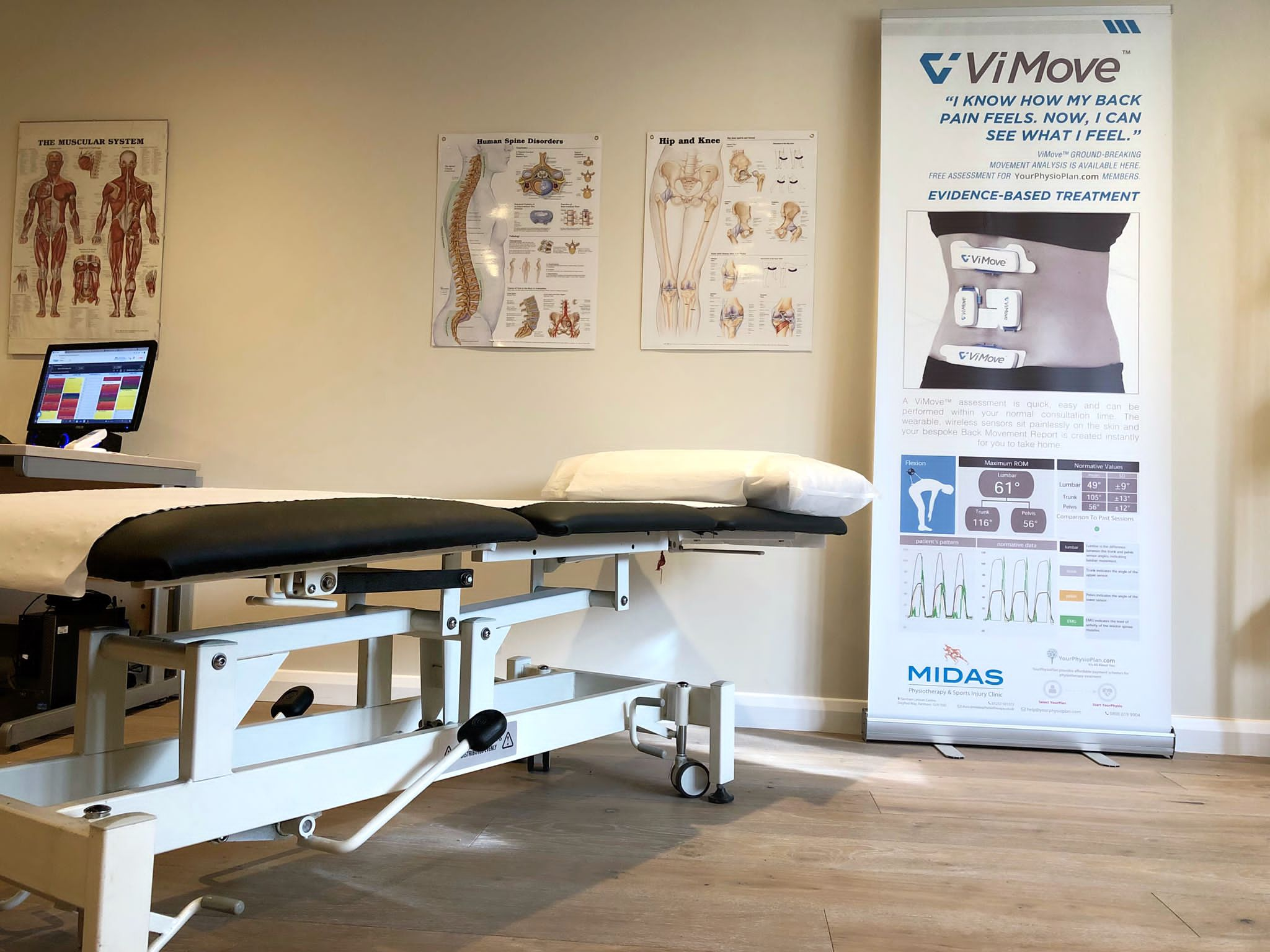
Address: Midas Physiotherapy & Sports Clinic,14 Farnham Business Park, Dogflud Way, Farnham, GU9 7UP
Testimonials
See what people are saying about us here .
We Are Social!
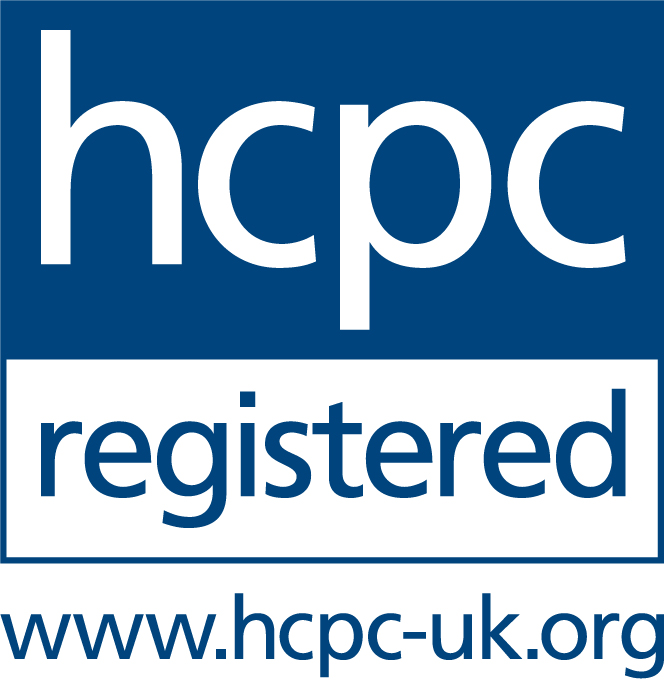
Your Local Neuro-Physiotherapy Experts
Providing neurological and eldery physiotherapy services at home in surrey and hampshire, welcome to foundations physio, – your patient journey –.
Welcome! You’re here and you’ve made the first positive step in your journey to wellness.
You’ve had a look around our website, why not give us a call?
Having spoken with our friendly team you’ve booked an assessment for a time that suits you.
Together we will set goals to work towards during the course of your treatment.
Working with your therapist you will both create a treatment plan to help you achieve your goals.
We will regularly re-assess and review your goals and provide feedback to family members!
You’ve had a look around our website, why not give us a call
A caring team of highly trained & experienced physiotherapists…
Foundations Physio was created in 2015 by Adam Poulter, a specialist physiotherapist with experience in the NHS and private hospitals in the field of neurology and elderley care. Born out of a need to provide more timely, innovative and effective care in line with the latest research & evidence, our mission is to provide specialist physiotherapy services to people living with neurological conditions and the elderly in our local community.
By drawing on our extensive contacts and expert team we aim to build an accessible service for those with long term conditions within Surrey and Hampshire, creating a positive and supportive community for those we work with. You and your family are at the heart of our service, we understand that a hospital admission or illness can be a really difficult time for everyone involved and represents a big life change. We like to approach people with this in mind, working in an empathetic and understanding manner to start you or your family member on their journey to better health.
Our expert clinicians will provide you with support in the form of exercises, access to technology to aid your recovery, information on your condition, contact with other relevant professionals, a clear plan of action to help you achieve your goals and of course lend an empathetic ear when you need it.
As a team we are all continually training and learning, using the latest research to inform our treatments and assessments.
We know that a change in your health can be a difficult time for you and for your loved ones and we pride ourselves on providing the right support, tailored exactly to you when you need it the most.
At Foundations Physio we specialise in working with people living with neurological conditions such as Stroke, MS, Parkinson’s, Cerebral Palsy, Brain Injury, Spinal Injury and Guillain-Barre Syndrome. With access to a range of rehabilitation technology in our Farnham clinic as well as extensive local contacts with charities and NHS services we are best placed to provide the support you need for your condition.
We also specialise in care of the elderly, whether it is a recent admission to hospital, reduction in mobility, falls or recovery from surgery, we can help you get back to your previous levels of fitness and independence. Applying the latest evidence in exercise and rehabilitation we will create an individualised program to help you on your way to recovery.
As well as our new clinic in Farnham, our expert physiotherapists provide home visits to people throughout Surrey and Hampshire and can offer advice, exercise programs, information on support networks and access to rehabilitation technology to help enhance your recovery.
Our team all have extensive experience within the NHS and private sector to draw upon as well as having completed further specialist training courses to expand their knowledge in their chosen field so you can be assured you are in good hands.
Our Services
We provide specialist services throughout the surrounding surrey & hampshire areas, neurology services, home visits, elderly care services, rehabilitation technology, specialist classes, wheelchair assessments, case managers, how to book, high quality care.
We’re passionate about providing the best possible care, that’s why we are committed to investing in our team and services, whether that is through further training on the latest rehabilitation techniques or investing in new and innovative technologies we’re striving to ensure you are provided with the greatest opportunity to improve your health.
Person First Approach
Our priority is to focus on you, your family and helping with your condition. We will regularly review and set targets in partnership with you and those closest to you, taking the time to focus on what’s important. We aim to help you take back some control and independence, working together to help you understand why and how physiotherapy can help.
Creating A Supportive Community
Having a good support network can be the key to recovery and the physiotherapist you work with plays a key role in that. We aim to help create a positive, motivating and understanding environment to enable you to move forward. Working with other professionals, family, charities and carers to provide you with the network you need.
We Go The Extra Mile
Your recovery and care are of paramount importance to us, that’s why we will always go the extra mile. To us the extra mile could be the time and effort we put into your treatment program, it could be researching ways for you to do things you never thought possible or just lending a listening ear when times are difficult. Whatever it is you may need, you can be assured we will be there for you.
Considering The Whole Picture
When we first meet you, we don’t just want to know about your condition, we want to know about you and what’s important to you. It helps us to set targets that mean something, and to understand how your condition affects your life. We don’t just want to look at the physical elements but also the emotional and cognitive effects you may be experiencing which will help us to gain a deeper understanding of things and ensure we are supporting you fully.
An Honest & Sympathetic Approach
Honesty and empathy are at the heart of everything we do. You can expect us to treat you with understanding and respect and that we will provide you with honest and upfront answers to your questions, however difficult these may seem. We feel this approach is essential in order to help you understand and move forward with your rehabilitation and the recovery process.
Encouraging Excellence
Not only do we encourage and pursue excellence within our team, we also encourage and motivate you to perform at your best. Whether that is “just one more” exercise or encouraging you to be independent with something in your daily life, we want you to exceed your own expectations.
Investing In Innovation
Healthcare is ever-changing and it can be hard to keep up with the latest updates and technology and it can be time consuming to filter through all of the information available. That’s why our team does it for you. By keeping in touch with the latest developments in the research and technology sectors we can best guide you towards what will work best, and often help you avoid the “miracle cures”.
Promoting A Healthy Happy Team
We firmly believe we can’t give you the best unless we are at our best. Our team is paramount to the success of our service and indeed to the success of the people we work with. We place their wellbeing at the top of our list by maintaining a flexible and open approach and being responsive to their wellbeing needs.
Meet The Team
Our team pride themselves on bringing you specialist care bespoke to your needs..
Browse our team members below and click on one of their avatars to learn more about them, what they bring to Foundations Physio and how they can help you.
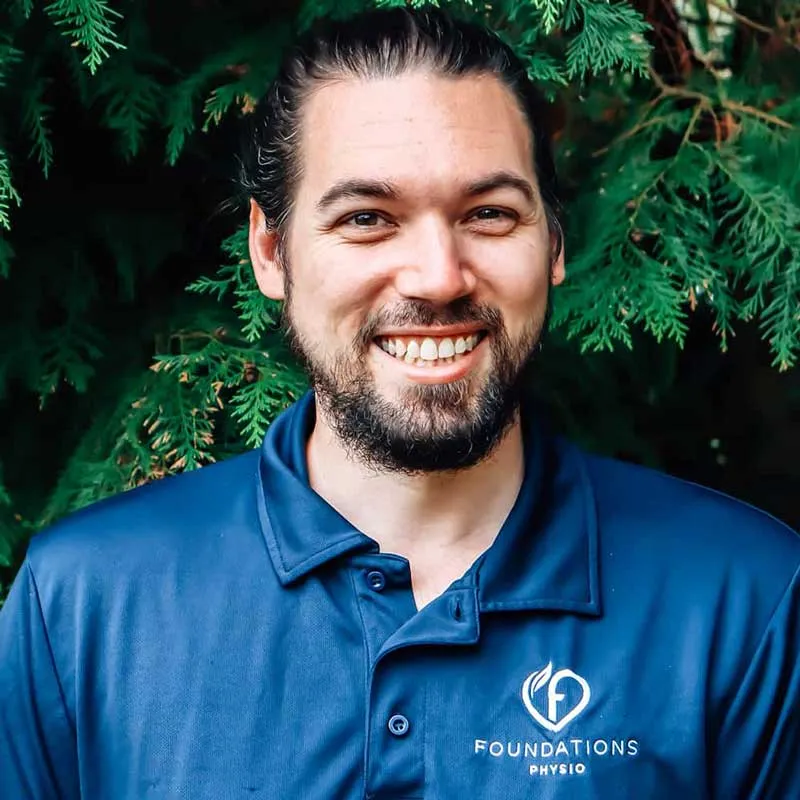
As the Director of Foundations Physio I love the variety in my role and I am lucky enough to work with a highly skilled and lovely team.
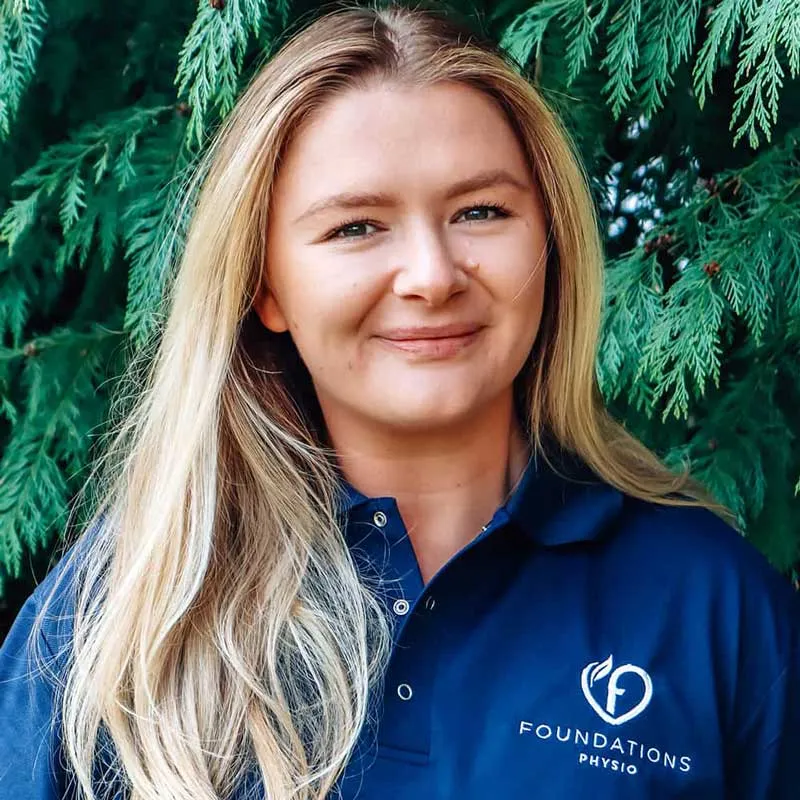
Hi! I’m Charlie and I love my role within the Foundations family.
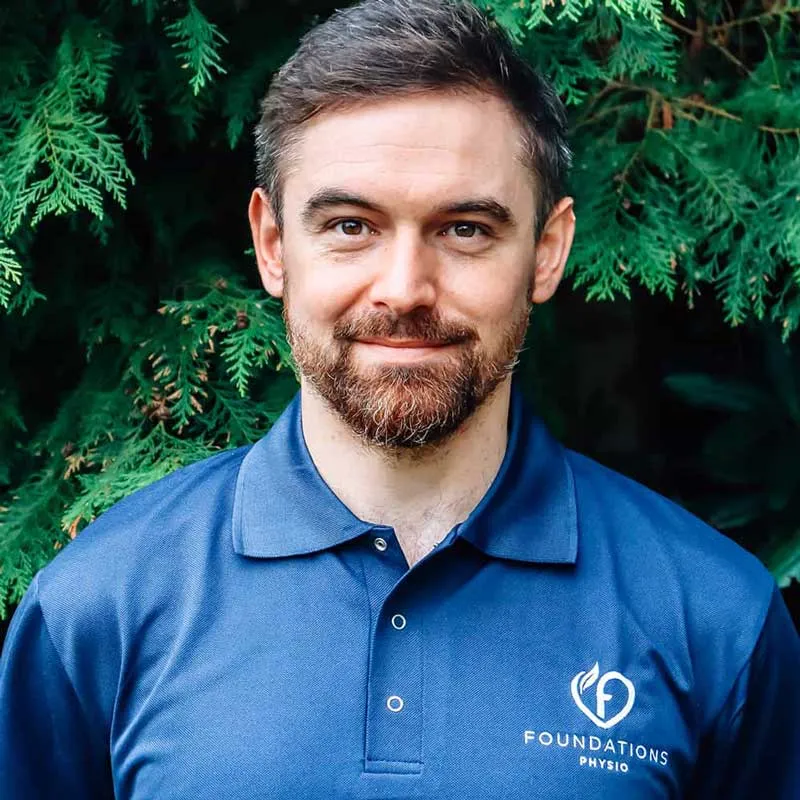
As a Neurophysio I have been lucky enough to work throughout all stages of the rehabilitation pathway.
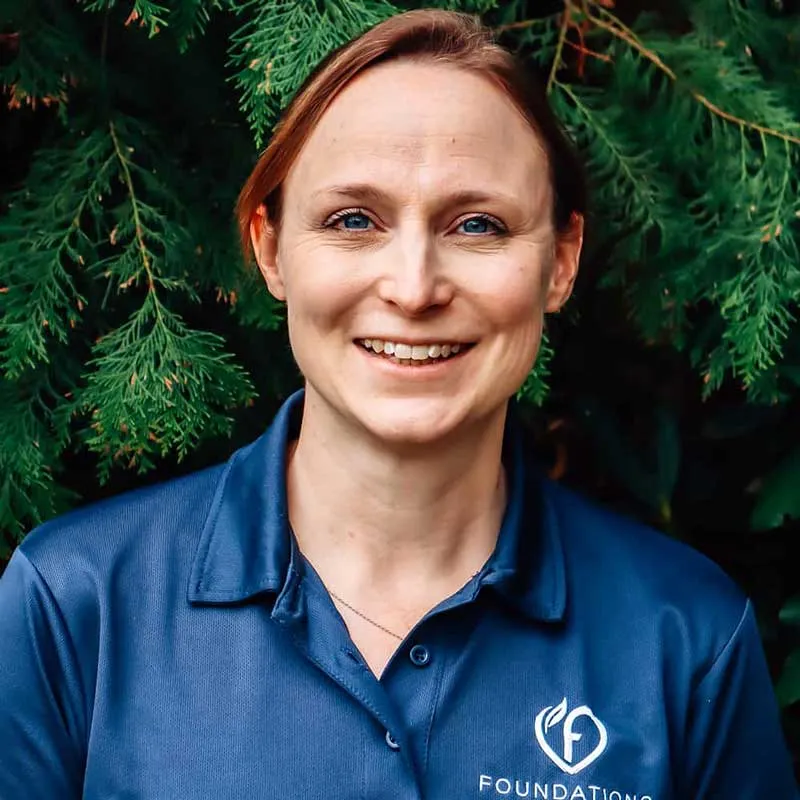
I am passionate about empowering people through rehabilitation to achieve their goals and regain independence.
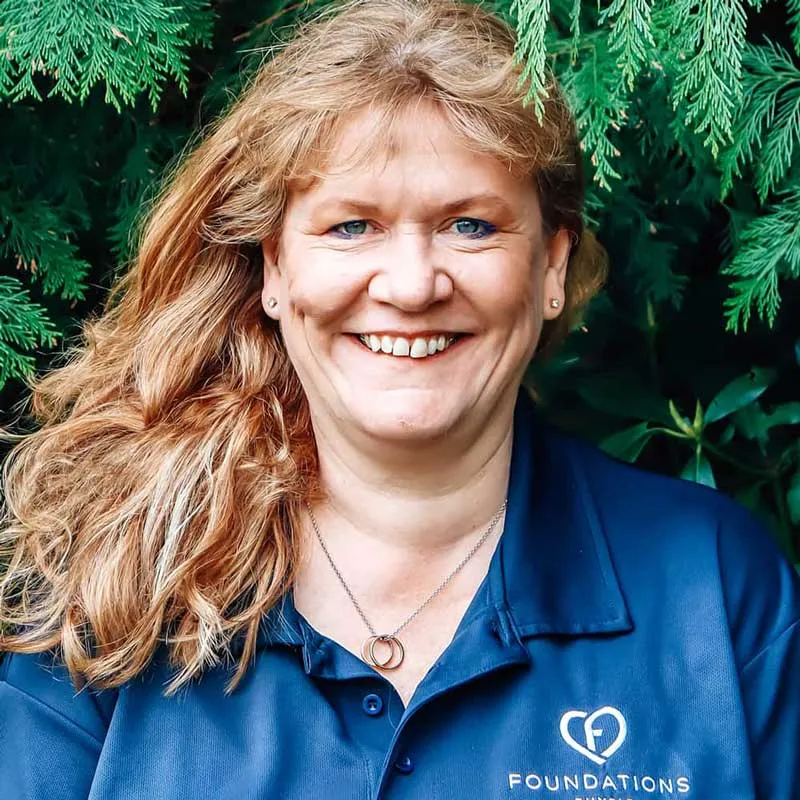
I worked as a qualified nurse for over 25years, the majority of the time in care of the elderly
Read More
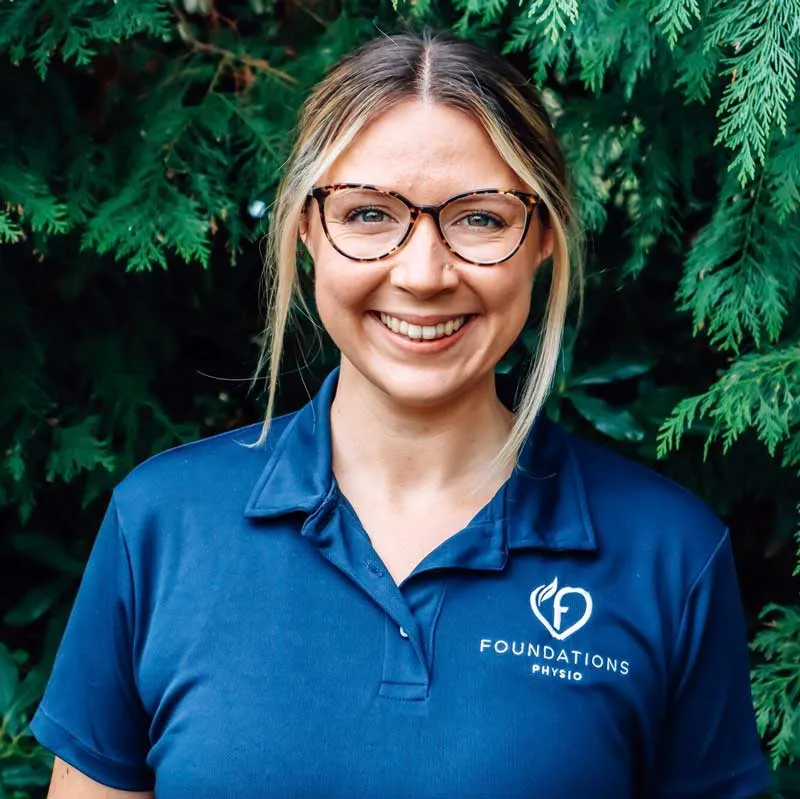
Who we work with
Foundation physio are proud to work with the following organisations & businesses.
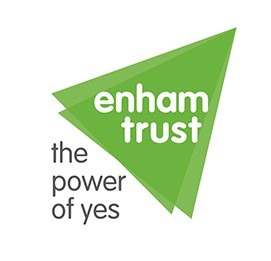
I am so so grateful that I found Foundations Physio - every single member of your team is fantastic. Not sure where I’d be without them! I can go for months and months on end without be able to see a doctor or consultant etc, and knowing that you guys are there, and that I see Kelly every week at class and every few weeks 1-2-1, is such a lifeline. Kelly’s support is so invaluable (she’s wonderful!) and I could not value her or the Foundations Physio team more.
Without exception the team’s kind and professional manner has enabled our residents to regain confidence and self-belief which has led to them reaching their optimum potential along their individual and often complex journeys. thank you, it is an absolute pleasure to work with you all..
Manager of Gracewell Care Home
The team have an excellent collaborative demeanour, bringing their encouragement, experience and analysis to bear on every aspect of my rehabilitation process. I wasn’t sure at the beginning what Foundations Physio would bring beyond what my NHS physio was providing, but I’m now convinced my progress has been much quicker thanks to their input.
Foundations physio give people their independence and confidence back. as a carer i see the impact the physio sessions have on the residents. it motivates people to keep moving forward, gives them hope and encourages them to think positively., i cannot recommend foundations physio highly enough the team have been visiting residents in our home since june 2014 when we first opened our doors. the difference that they have made, not only to the physical well being but also to the psychological and emotional well being of the residents here is truly outstanding., adam was my physio whilst i was in a rehabilitation unit and then subsequently when i was at first at home. i could not stand up, let alone walk when he first started helping me. he was very caring, supportive, encouraging and pushed me to do things that i did not really believe that i could do. so now after a further 9 months, i feel that i am really leading a fairly normal life again and am not sure that would have happened without his initial support and care., i can’t tell you how pleased i am to have met adam. he was there for through some really rough times with helpful advice and support. my ms was really getting me down and i now have some useful aids and a new support group that adam introduced me to. my family would also like to thank the foundations physio team for their encouragement and positivity., adam has been my father’s physio for over a year and the care and attention he has shown has been excellent. we were fortunate to meet adam a couple of years ago through the nhs and have subsequently used foundations physio on a private one to one basis; the incredibly high level of care has been absolutely super., we are a very diverse group with various disabilities, the sessions are geared to improve all of us individually. adam leads the group with great empathy and understanding of our needs, at the same time as being quite a work out for us it is also an enjoyable experience..
Clean hands save lives - Wash your hands!
Little Moore Rehabilitation
Our services.
Little Moore rehabilitation is based in Farnham, Aldershot and the surrounding areas.
We offer a personal home visiting physiotherapy service based on our extensive clinical experience. We treat a range of conditions specialising in the care of older people.
These include:
Frailty and decreased mobility
Falls prevention and management
Pre and post-operative orthopaedic rehabilitation
Neurological conditions including Parkinson’s disease and MS
Working with patients with dementia
Residential and Nursing home visits for assessment and treatment as required
Promoting physical independence and quality of life

We support patients who have recently been discharged from hospital to progress them back to their previous level of function.

We offer one off home visits for assessment and treatment

We offer, at home, short courses of physiotherapy, or long term visits for maintenance of long term conditions.
We believe patients are often more comfortable and confident at home. We are able to assess their individual conditions and set more realistic goals within their own environment meaning patients often progress more quickly. This is especially true of patients with dementia with which we are very experienced. Home visiting also removes the trauma and difficulty of having to travel to appointments in unfamiliar surroundings.

Discover your strength.

High-quality physio at home
Home / Locations / Surrey / Farnham
Physiotherapy directly to your front door in the Surrey town of Farnham
Home Physio Group covers London and the home counties, including Surrey. We are delighted to offer physiotherapy services in Farnham and the surrounding areas. We recruit a number of fully-qualified, skilfull, and experienced physiotherapists . All our practitioners are members of the Health and Care Professions Council (HCPC) and the Chartered Society of Physiotherapy (CSP).
We can arrange visits in the comfort of your own home, workplace, or care home immediately; either for a one-off appointment or more regular visits. Our physios treat a vast variety of conditions: aches and pains, injuries, multiple sclerosis , strokes, dementia, Parkinson’s disease, women’s health, cancer, and much more.
Our professional staff can help with all your physio needs
The handsome market town of Farnham has great transport links, pretty cobbled streets, lovely shops, and a fascinating sculpture park. Head to the Surrey Hills for a gentle stroll or seek out one of the grassy parks for a bike ride. Getting out into the fresh air has so many health benefits, especially for those keen to get started on their physio programme.
To find out more how we can help you or your loved ones, please give us a call on 0330 335 1016. One of our trained and friendly advisers will answer any questions you may have. Alternatively, you can fill out the enquiry form on our website and we will be in touch with you.
Meet our physios
Our services, select a service to learn more, case management and physio, chest physiotherapy, neurological physiotherapy, physio after surgery, physio for aches and pains, physio for children, physio for the elderly, physio support for dementia care, physio treatment at work, physiotherapy post coronavirus, physiotherapy visits in care homes, women’s health physio, what our clients say, useful information.
- How we help
- Conditions we treat
Home Physio Group
- Our approach
- Our physios
- Testimonials
- Join our team
Get in touch by phone or email for more information
Read our latest news, articles and tips to stay healthy
© 2020 – 2023 Home Physio Group
Terms and Conditions
Privacy Policy
Welcome to Farnham Physiotherapy & Sports Clinic
- 20 Firgrove Hill, Farnham GU9 8LQ, Surrey
- Mon to Sat (Open) 8:30am

01252726479
Send an email
- [email protected]
Home Based Physiotherapy
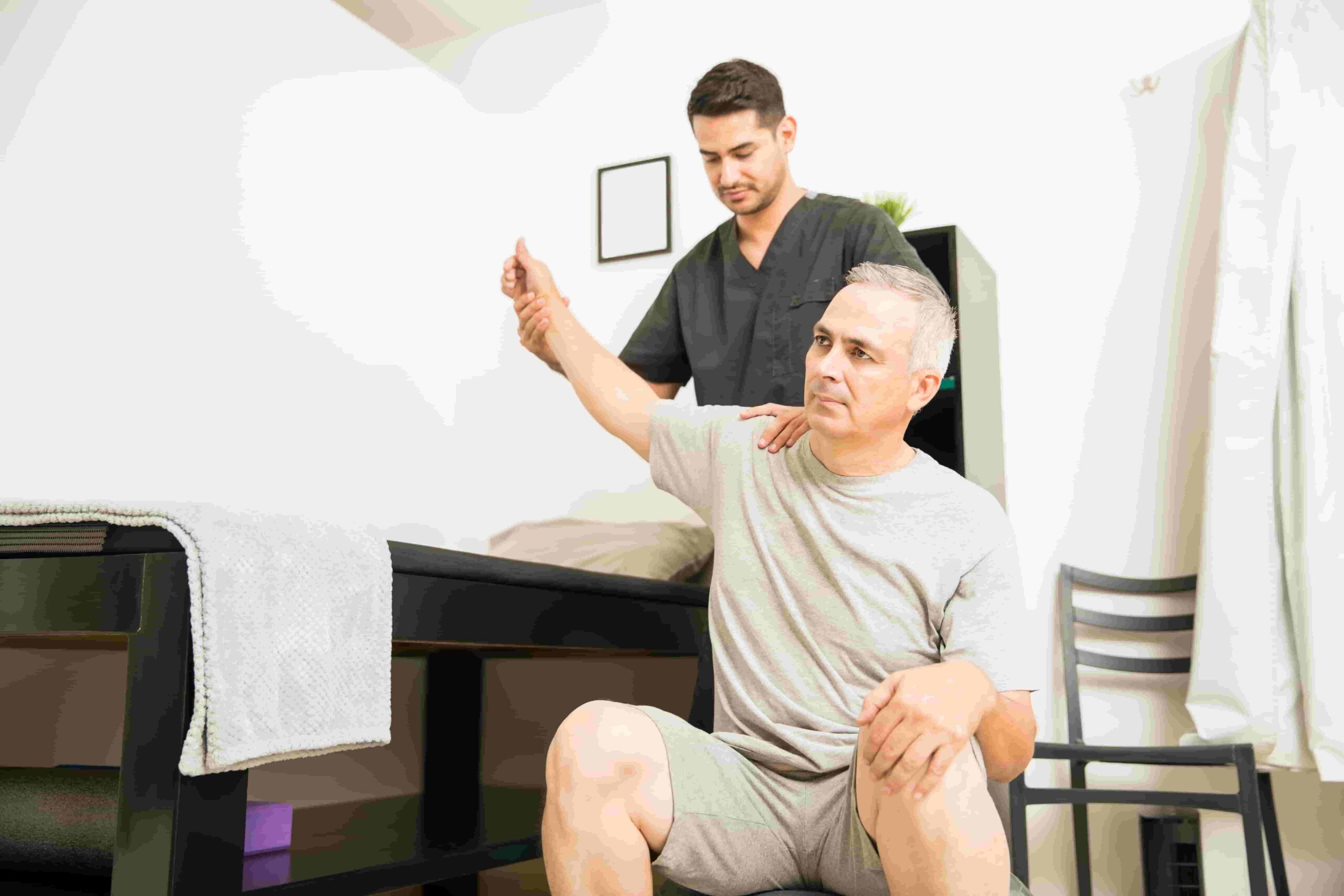
- Hands-on physiotherapy
- Exercise-based rehab program
- Soft tissue massage
- Posture and positioning advice
- Balance and strengthening program
- Ergonomic advice
- Gait training and analysis
- Equipment: Transfer and walking aid advice and prescription
- Carer training and family training
- Spasticity Management
Farnham Physiotherapy & Sports Clinic
+447899544569.
- Our Services
- Term and Conditions
- Privacy Statement
8.30 - 20.00
8.30 - 17.00, 8.30 - 16.00.

- Tap to call!
- 01428 609975
- [email protected]
Book Online
We have a new page!
Keep up to date with the latest news and information from Backtogether Physiotherapy with our news and information page.
Welcome to Backtogether Physiotherapy
Physiotherapy
The aim of physiotherapy is to restore function and normal movement.
Pilates will help to develop your flexibility, posture and core stability.
Acupuncture
Physiotherapists use these skills as part of a multi faceted approach to their management of pain and inflammation.
Farnham Physiotherapy
Backtogether Physiotherapy offers a comprehensive service operating out of three centres around Elstead, Farnham and Headley (Hants). All physiotherapists are fully qualified and highly experienced.
We run a fully comprehensive service which not only offers highly skilled physiotherapy treatment but also a complete package of care.
We are very manual based with an emphasis on hands-on treatments, exercise and self management which is complimented by physiotherapist taught Pilates, ergonomics and acupuncture.
We offer a variety of treatments enabling us to give relief to a multitude of conditions including but not exclusively;
- Pelvic pain
- Sports injuries
- Post surgery Rehabilitation
- Pre and Post Natal
- Joint pains
- Reduced mobility
We work closely with GPs and Consultants allowing a clear understanding and channel of communication to optimise the care of our patients.
Your diagnosis and treatment is in skilled hands and our treatments are very hands-on. We look after the complete requirements of our patients, ensuring they are happy and confident with their recovery pathway. We offer a great level of support, giving advice, increasing confidence, encouraging motivation and answering any questions people have. We are contactable through telephone, email and Facebook.
We believe in self management and prevention to help after the treatment episode and we teach Pilates classes and perform ergonomic assessments to compliment our treatment programs.
We offer a variety of treatments enabling us to give relief to a multitude of conditions including back and neck pain, sports injuries, joint pains, muscle strains, reduced mobility, postoperative care and rehabilitation amongst others.
- No waiting list
- Hands on treatment
- Self-referral
- We operate out of four different locations in and around Farnham, Elstead and Bordon
- We are a professional and caring service
- All physiotherapists are highly qualified and experienced
- Physiotherapy, Acupuncture, Pilates and Womens Health
Working out of different sites offers flexibility to patients. However for those unable to travel to the surgery we are able to arrange home visits.
Every physiotherapist is a member of the CSP (Chartered Society of Physiotherapy) and also HPC registered.
We accept self referring and self funding patients and are recognised by all major insurance companies.
If you would like to make an appointment or find out more, please don't hesitate to call 01428 609975 , email on [email protected] or, you can book online .

Common conditions we treat:

News and Information
Keep up to date with the latest news and information from Backtogether Physiotherapy.
Our Testimonials
I would like to say that the treatment that I received from Jane in Elstead turned my health around completely.
I am very happy because I know that if I have another bout of back trouble I can trust Jane to give me the very best advice and treatment, all at local clinic and reasonably priced.
Thank you very much indeed.
Powered By Physio123
Call us: 0142084487
PHYSIOTHERAPY IN FARNHAM
Shoulder injuries, Neck pain, Knee pain, Diagnosis and treatment. Physiotherapy at home, Post- operative, chronic pain management, manipulations, Massage, injections, Physiotherapist in Farnham Clinic provide an excellent level of care and treatment. Our Farnham physiotherapists provide advanced assessment and holistic treatments like massage, mobilizations and acupuncture for a wide range of musculoskeletal conditions like lower back pain, headaches and bad posture serving Alton Hampshire, Farnham and surrounding areas. We also have in house Diagnostic Ultrasound for musculoskeletal conditions like rotator cuff tear, tendonosis or ligament injuries. We also provide expert post- operative rehabilitation after total knee or hip replacement.
- Posture related problems
- Shoulder and Elbow problems
- Hand and Wrist conditions
- Hip and Knee conditions
- Foot and Ankle problems
- Sports related injuries
- Post fracture rehabilitation
- Work related Injuries
- Ligament and Tendon injuries
- Soft Tissue Injuries
Your Care Pathway with us
- To book an appointment you can call our normal reception line, 0142084487, email direct to [email protected] or click the button given below.
- Complete MSK Examination and testing.
- Detailed MSK ultrasound scan.
- Discussion of your treatment plan; Treatment Plans can include i.e advanced treatmeants for ex. Cortisone Injection , Ostenil plus (Hyaluronic injection) , Prolotherapy or Conservative management like physiotherapy, massage, acupuncture, shockwave therapy and laser therapy.
We assess, diagnose and clinically reason what can be causing the problem. Patients are explained in plain and simple way about their possible condition e.g.why you have a ‘dodgy knee’, why your back is playing up or why you have stiffness and soreness in muscles or joints first thing in the morning. Physio in Farnham use the variety of manual therapy skills like manipulation of joints, soft tissue release and trigger point therapy to treat the symptoms and underlying cause. Our aim is to minimize pain and maximize function by using tailored exercise programme along with hands-on treatment. Physiotherapy in Farnham, Physio near me, Physiotherapist in Farnham, Physiotherapy and sports injury clinic in Farnham, Running injuries’ treatment in Farnham, Best Physio in Farnham.
WHERE TO FIND US
Privacy Overview
FARNHAM PHYSIOTHERAPY CLINIC
Expert, personalised and convenient physiotherapy for Farnham and the surrounding areas
WE PROVIDE TAILORED PRIVATE PHYSIOTHERAPY & SPORTS PHYSIOTHERAPY TREATMENT AND PREVENTION PLANS
Our specialist physiotherapy centre in Surrey encompasses a full array of musculoskeletal practices, delivered by a team of highly qualified physiotherapists and sports therapists with the main aim to get your body back on track. Whether you have been struggling with neck strain , battling with back pain , or dealing with deep tissue pain , we will work with you to restore and protect the disrupted function of your body through a personalised care treatment programme.
The Farnham physio clinicians can provide everything from MSK physio to sports massage and acupuncture , and are experienced in dealing with issues from head to toe. If you live or work in the Farnham area, and have found yourself suffering from a painful or uncomfortable condition such as back pain , a foot injury or arthritis , contact us today or book an appointment online at our physiotherapy clinic near you today.
Response Physio & Sports Therapy At Farnham Leisure Centre
Our Surrey physiotherapy clinic is located inside Farnham Leisure Centre, located in the historic town of Farnham. The fantastic leisure environment enables us to make sure the best rehabilitation plan is available, with a well-equipped treatment room, fitness suites and gym facilities, and access to the swimming pool.
If you are searching for ‘physiotherapy near me’, or are looking for a sports injury specialist and are hoping for a ‘sports massage near me’ in Surrey, then you have come to the right place.
Useful to know:
- Our clinic is located on the first floor. Single-level access to the centre and a disability-accessible lift up to the clinic floor
- Parking is 80p/hour outside. It’s called Riverside 1 and 2. 2 car parks essentially – one is right outside the centre and the other is 50m round the corner. Free parking is available after 6.30 pm
- You do not need a GP referral to have MSK or sports physiotherapy treatment – we provide a self-pay option to private customers
- We are recognised by all major private health insurers, including AXA, BUPA, AVIVA and Nuffield so you can use your private health insurance*
*This will depend on the terms and conditions of your health insurance plan, we recommend you contact your insurer to find out before treatment.
TREATMENTS AVAILABLE AT OUR FARNHAM PHYSIO CLINIC
PHYSIOTHERAPY
VIRTUAL PHYSIOTHERAPY
SPORTS MASSAGE
SPORTS INJURY & SPORTS MOVEMENT
BIOMECHANICS & GAIT ANALYSIS
ACUPUNCTURE & DRY NEEDLING
AQUA THERAPY
CONDITIONS WE TREAT
Our experts will identify and treat an array of musculoskeletal conditions that affect the muscles, joints and soft tissues within the body. We find that physio for back pain and sports massage for back pain are particular areas of focus for many people.
Book a physiotherapy appointment today if you find yourself in pain or discomfort from a musculoskeletal injury, illness or disorder. Our team at the Farnham physio and sports clinic will design a personalised treatment plan for you.
We will work with you to develop the most appropriate road to recovery, which may involve the use of David Lloyd Farnham health and fitness facilities such as the gym for physio exercises, the pool for hydrotherapy, or you may benefit from a sports massage in Farnham.
The range of conditions we treat with physiotherapy include…
- Ankle and foot pain
- Hand & wrist pain
- Hip & groin pain
- Shoulder pain
PHYSIOTHERAPY TREATMENT PRICES IN FARNHAM
If you are suffering from a condition, pain or discomfort disrupting your daily tasks or mood, our high-quality, customer-focused physiotherapy service is the perfect solution for you. We offer self-pay options for patients without a referral, and we are also recognised by all major health insurers if you are wanting to use your private health insurance towards the cost. Visit our specialist physiotherapy Surrey clinic today.
Contact Farnham
Here’s what our customers are saying about response physio & sports therapy farnham, looking for occupational health services .
With teams of occupational health professionals in all major locations across the country, we have the experience and expertise to help your business deal with any challenges it may encounter.

Leading independent Physiotherapy and Sports Injuries service
Back to action specialise in physiotherapy, sports injuries and all musculoskeletal conditions. we aim to help all individuals achieve their personal goals, however big or small..
At Back to Action Physiotherapy and Sports Injuries we specialise in musculoskeletal physiotherapy, sports injuries and occupational health support. We take pride in being able to support you on your journey back to full health and normal activities of daily living.
We are fortunate to be based in the outstanding facility at IN2 Training, Farnham which provides an excellent location for your rehabilitation needs. We also offer mobile and remote physiotherapy services to the Haslemere, Liphook and Liss areas in the form of home visits or at an alternative agreed venue.
You can rest assured that all our clinicians are fully registered with the HCPC and hold fully chartered status. We use an evidence-based approach to all assessment and treatment to ensure you are receiving the highest quality of care. Our services provide assistance to all individuals and we look forward to being able to support you in achieving your goals.
Let's get you back to action
Our Services
NEW: Mobile Physiotherapy Clinic
We now offer mobile and remote physiotherapy services to the Haslemere, Liphook and Liss areas in the form of home visits or at an alternative agreed venue.
Physiotherapy Clinic
Our Chartered Physiotherapists are all HCPC registered and are experienced in assessing and treating a broad spectrum of musculoskeletal disorders from sports injuries to occupational health disorders.
Sports Massage
We offer tailored hands-on sports massage treatment in combination with exercise prescription to enhance recovery and maintain optimum function.
Sports Event Support
Our therapists offer dedicated onsite event support to help improve performance and recovery for individuals and teams.
Sports Injuries Clinic
Our Chartered Therapists provide bespoke assessment and treatment which will be goal focused to help you return to or aid your sporting activity.
Occupational Health Support
Support your employees and business with a bespoke service, offering musculoskeletal advice and recommendations from a Chartered Physiotherapist.
Virtual Assessment
We offer remote Chartered Physiotherapy assessment and advice without having to attend clinic, providing a convenient solution for all individuals.
We've got you covered
Health Insurers we work with

Cameron Brannagan
Liverpool, Oxford United and England Youth Team International
“Always first class when assessing and treating my needs within the game. His attention to detail always sorted me right out!”
- 01252 717529
- [email protected]

- Search Search Search …
Our Farnham Physiotherapy Clinic Specialises in Helping Health-Conscious, Active People Over Fifty to Regain Mobility & Avoid Surgery!
Watch this video where HT Physio's Over-50's Specialist, Will Harlow , explains how HT Physio helps people in Farnham aged 50+ to get off pain killers , avoid surgery and get back to doing the things they love !
If you've been told your painful problem is " just a part of getting old " or you're worried about becoming reliant on painkillers and missing out on the things you enjoy...
HT Physio could be the solution to your problem!
Ready to find out more, free discovery session.
We understand that not everyone is ready to book a full assessment without having some questions answered first . If you were let down in the past and want to see how we are different, book a 100% Free Discovery Session where you can meet us before you commit to treatment!
Free Telephone Consultation
If you're struggling with a painful problem, ask us for some expert advice (with no obligation to become a client). If you want to ask how we can help, or simply need some advice about your issue, you can have all your questions answered over the phone by an expert Farnham physiotherapist.
About HT Physio in Farnham
If you're like our usual clients, you are searching for a natural way to live free from pain killers, avoid surgery and return to your active life after injury. .
We don't believe in telling people that their problems are " just due to their age ", nor do we subscribe to the " take stronger painkillers " advice that you may have received from the NHS.
We focus on taking our clients from feeling anxious and limited by injury, to having the confidence to return to the things they love!
If you're searching for a Farnham physiotherapy clinic with a dedicated over-50's specialist , why not get in touch to see how HT Physio can help you to achieve your goals?
Meet Some of Our Wonderful Past Farnham Physiotherapy Clients!
Is HT Physio's Farnham Physiotherapy Clinic Right For Me ?
Our farnham physiotherapy clinic helps:.
- People aged 50+ in Farnham and Surrey who truly value their health and want to live free from nagging painful problems.
- Those who DON'T want to rely on pain killers to remain active.
- Those who know that specialist expert attention and treatment is the best possible way to put an end to their painful problem.
- Those who have a clear goal that they want to achieve - and are SERIOUS about achieving it!
- Those who DON'T want to gamble on NHS treatment - and can't afford to wait up to 12 weeks to be seen on the NHS.
- Those who want to regain their vitality, social life and sex life after being held back by a painful problem!
Look Inside Our Beautiful Farnham Physio Clinic!
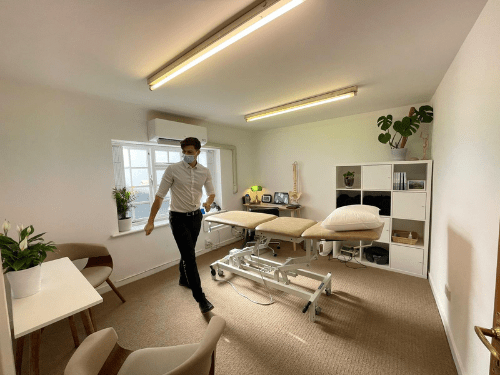
How We're Different to Other Providers:
- A uniquely specialist approach to helping over-fifties solve painful problems
- Polite, friendly, welcoming, honest & genuine staff who truly care about the people they serve
- Flexibility in appointment times to suit your preferences and needs
- An emphasis on HANDS-ON treatment (NOT just a sheet of exercises)
- A practitioner who actually listens and takes the time to understand your problem
- Expert guidance on a range of options to help you decide on the best path to fixing your issue
- A business that truly values their customers and prioritises client satisfaction and results above all else
- World-class follow-up care to ensure you achieve - and maintain - your recovery from injury
- A gentle approach from someone who understands that not everyone wants to run marathons!
Find Out How It Works Here:
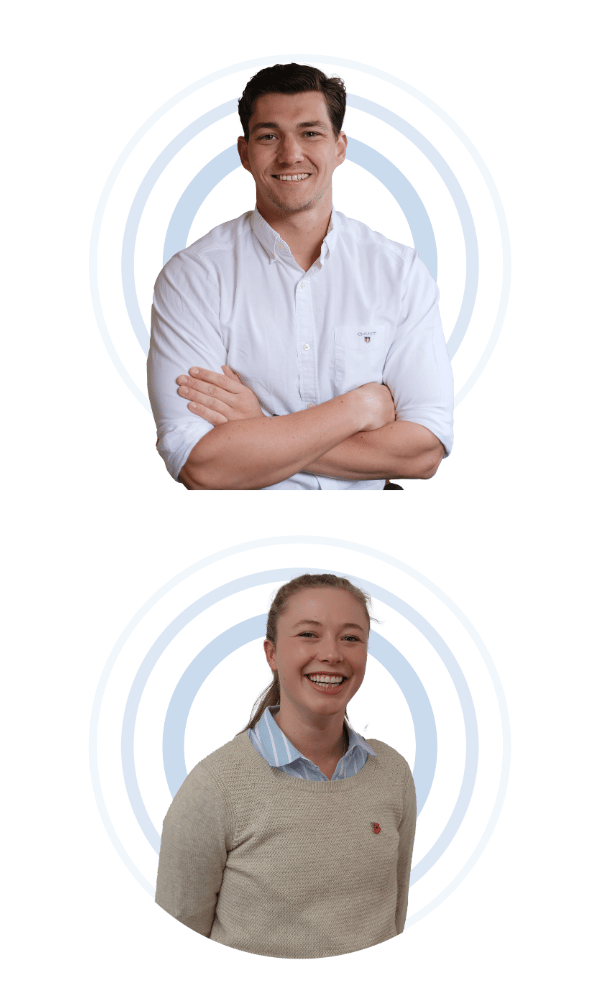
Meet Our Clinical Team
Our clinical team are specialists in helping people in Farnham & Surrey aged 50+ to get off pain killers, avoid surgery and live the life they deserve!
The team is led by Will Harlow, Farnham's Leading Over-50's Specialist, Best-Selling Author & Clinical Lead at HT Physio.
Joining us in 2023, Lucy Collecott is our lower limb specialist who enjoys helping over-fifties to improve the symptoms of arthritis and regain mobility after injury.
READ MORE ABOUT OUR TEAM...
Now Available from Head Physio Will Harlow:

Thriving Beyond Fifty
111 natural strategies to restore your mobility, avoid surgery & stay off pain pills in your fifties... and beyond.
Thriving Beyond Fifty is Will's brand new book, dedicated to sharing some of his best strategies for maintaining health, mobility and independence in middle age and beyond!
You'll learn how to ensure health in mind, body and spirit with 111 strategies designed to show anyone of retirement age how to say goodbye to pain and suffering so they can get on with ENJOYING life!
Click HERE to view it on Amazon and get your copy!

Where's the Problem?
Take one of our free guides below to start finding relief at home.
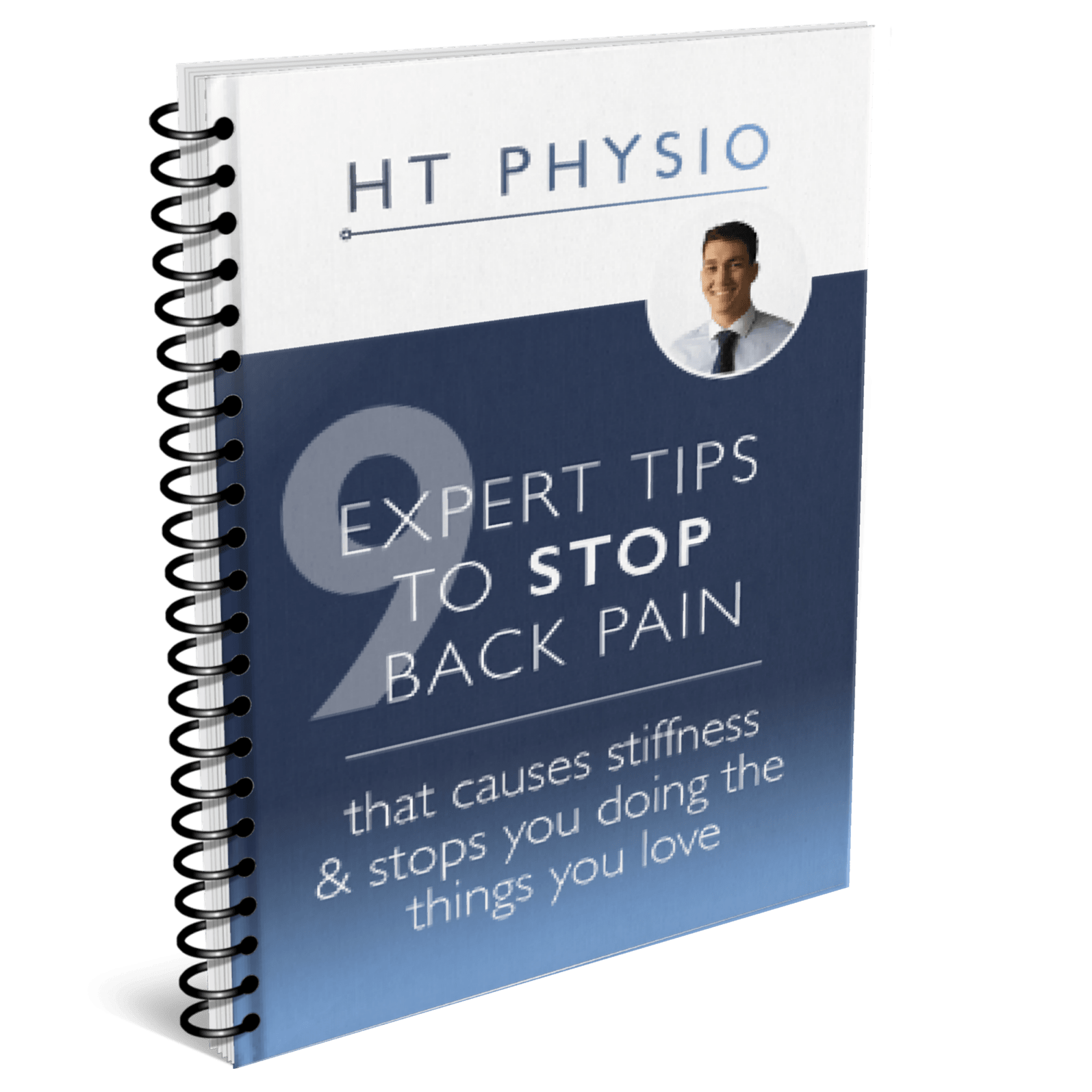
We help people with back pain to get off pain killers, avoid surgery and regain their mobility. Our free guide will give you expert tips for finding relief from back pain at home - without another trip to the doctor!
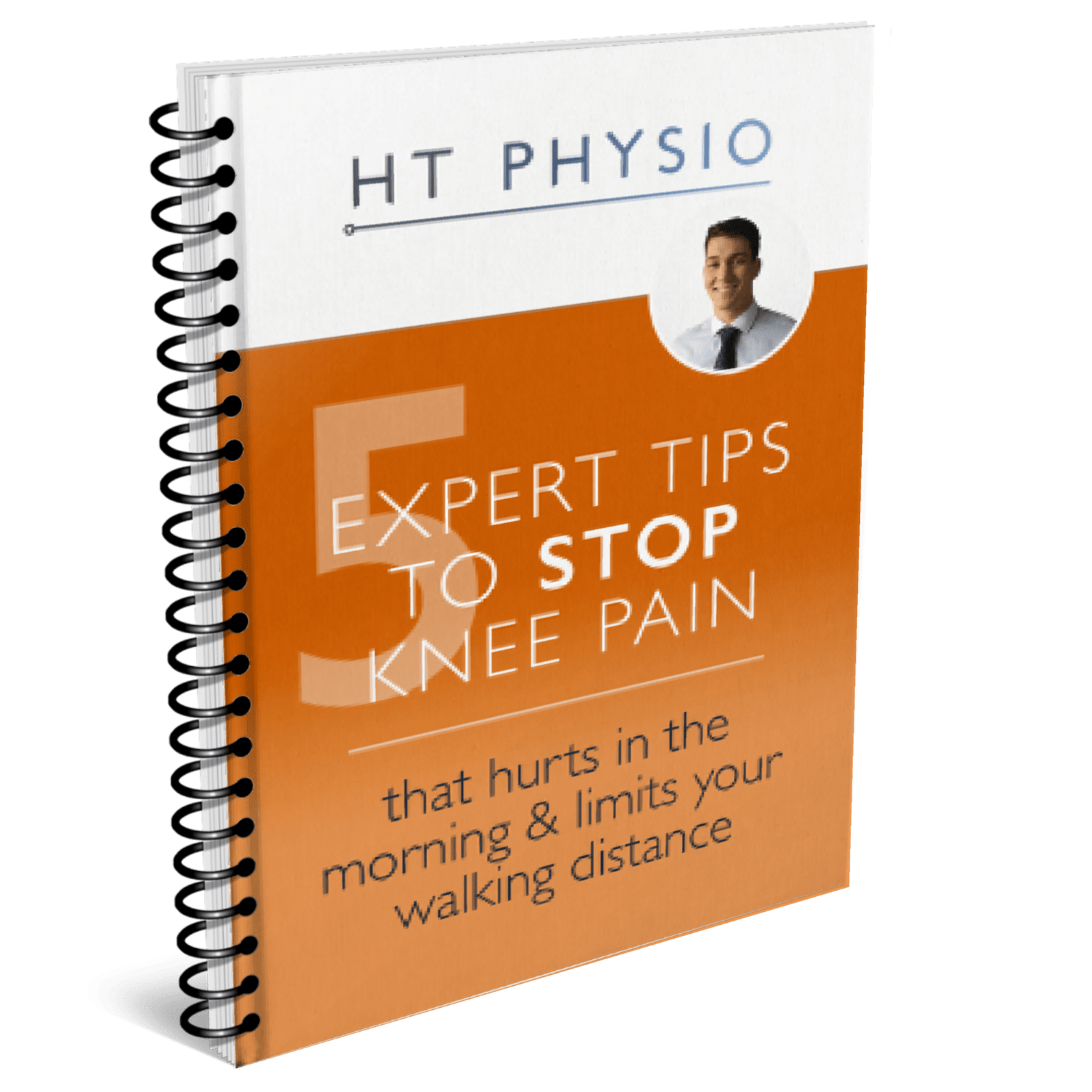
We have a wealth of experience in helping people with knee pain to walk further, avoid falls and get off pain pills. Our free guide gives you tips for finding knee pain relief from problems like arthritis.
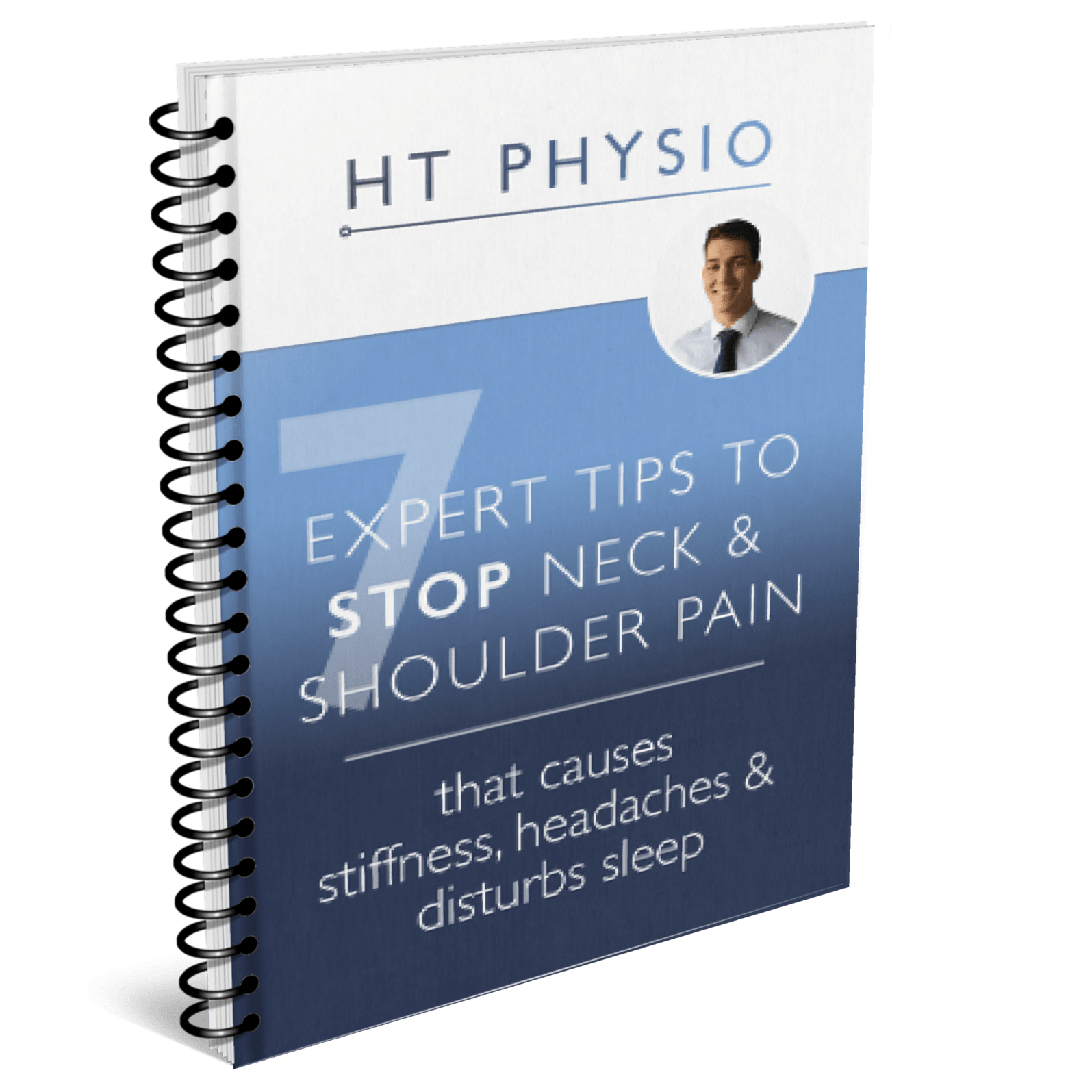
Neck & Shoulder Pain
We help people with neck and shoulder pain to work, sleep and drive without constant disturbance. Our free guide gives you tips for getting rid of neck or shoulder pain without pain pills.

More FREE Expert Information To Help Your Problem
Our YouTube channel has over 200,000 subscribers and gets 100,000 views every day! You can find a selection of our videos below, or go here to visit our full channel on YouTube.
Back Pain? Why You Should STOP Stretching Your Hamstrings!

One Incredible Exercise for Strong Legs (Ages 50+)
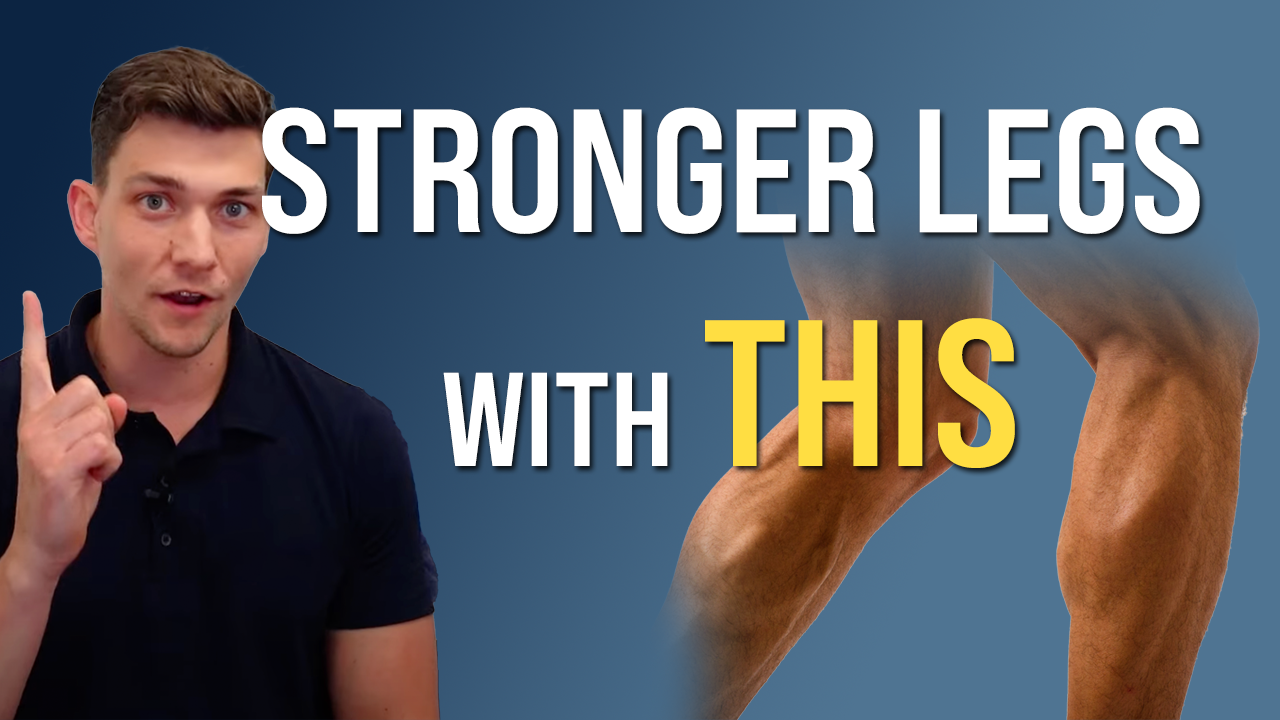
Shoulder Exercises to AVOID Over Age 50
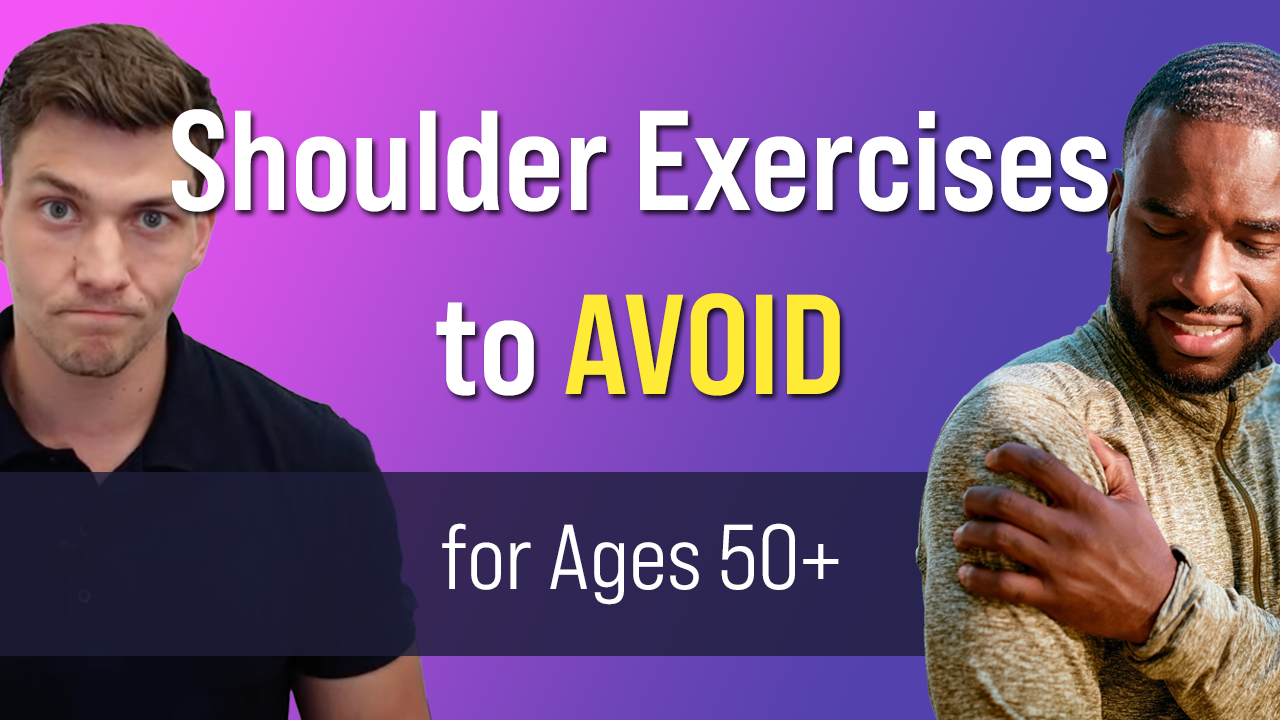
5 Terrible Pieces of Advice for Ages 50+ (AVOID)

How to Easily Get Out of a Chair (Ages 70+)
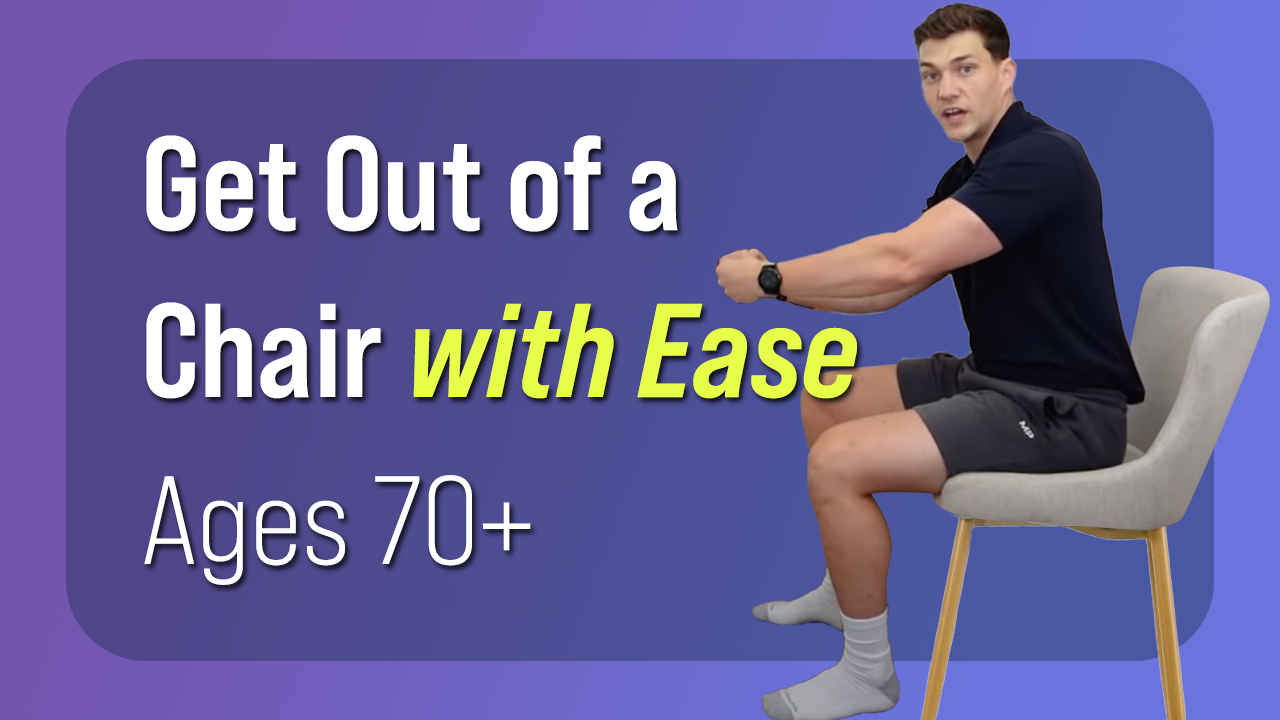
3 Exercises to Help You Get Up Off the Floor (Ages 50+)
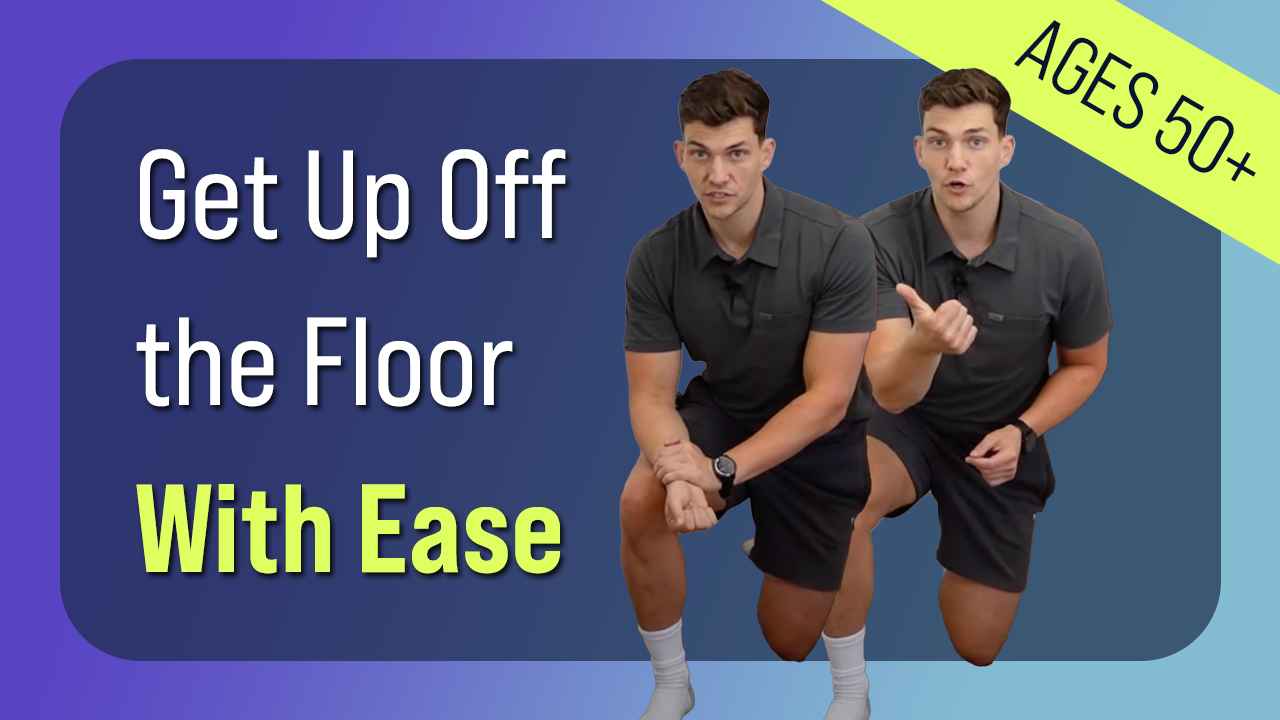
Stronger Legs in Just 10 Days (for Seniors)
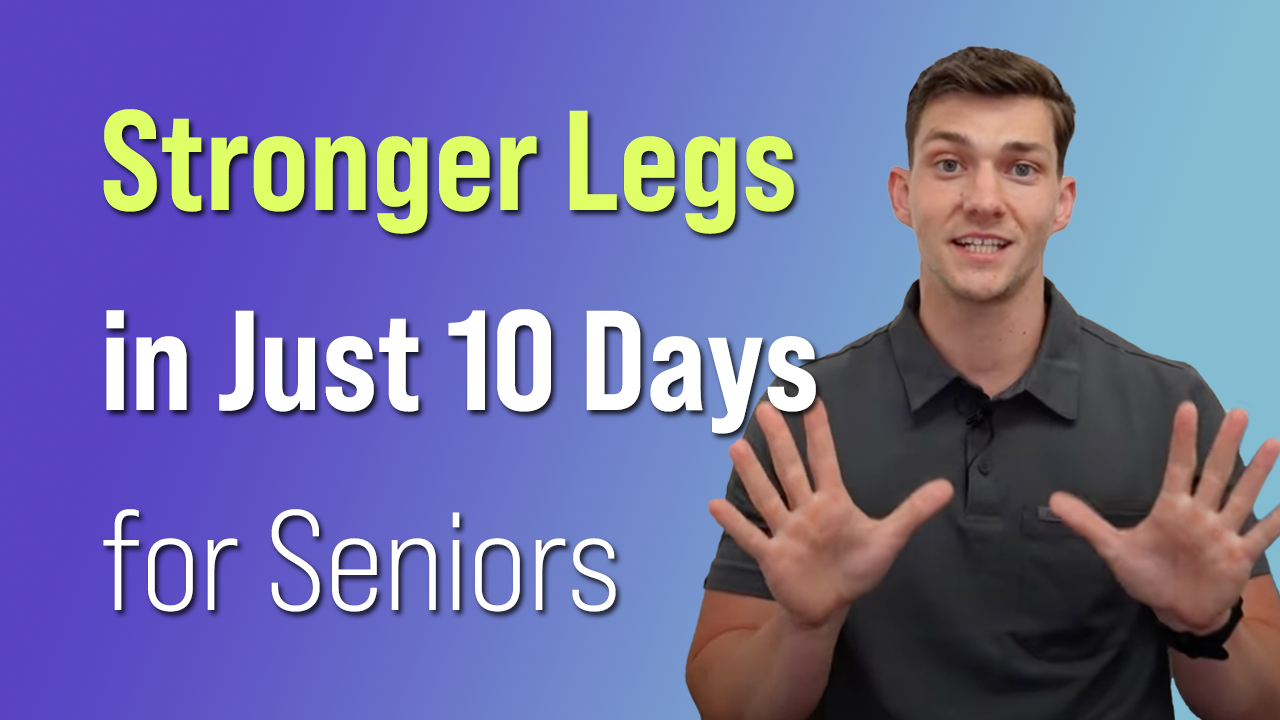
A Simple Stretch to Improve Your Walking (for 50+)
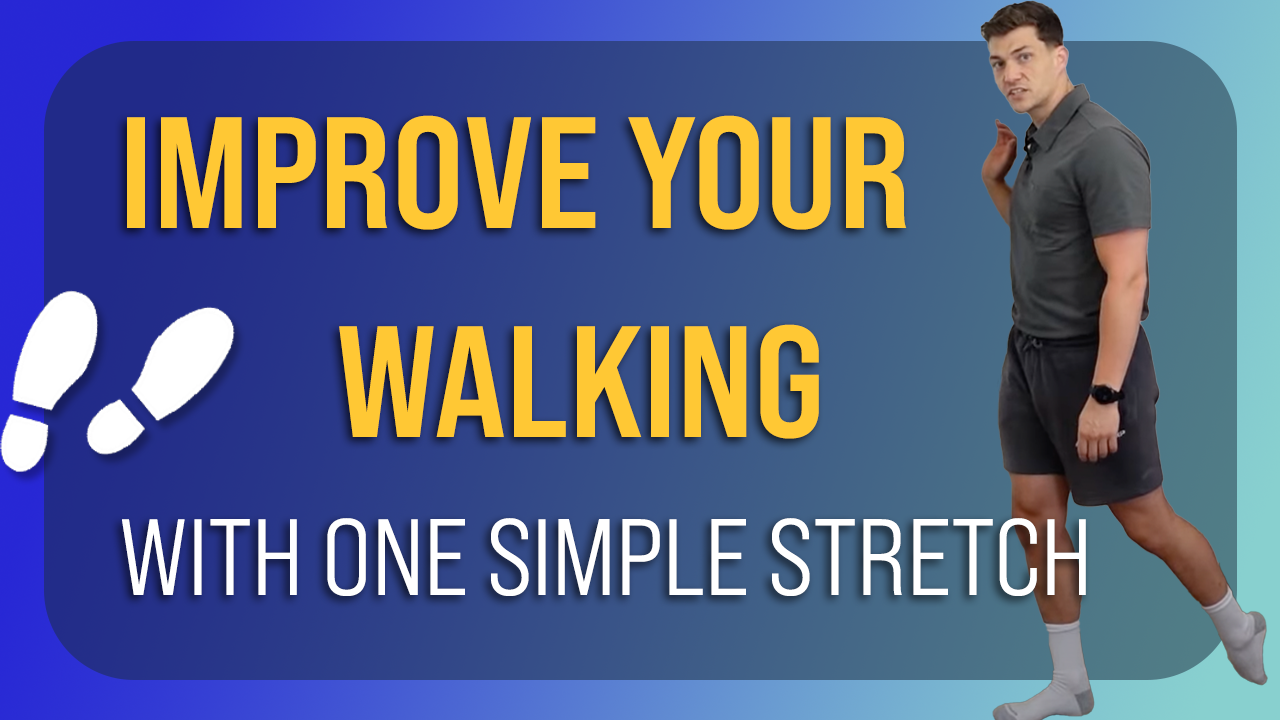
Biggest Exercise MYTHS for Ages 50+
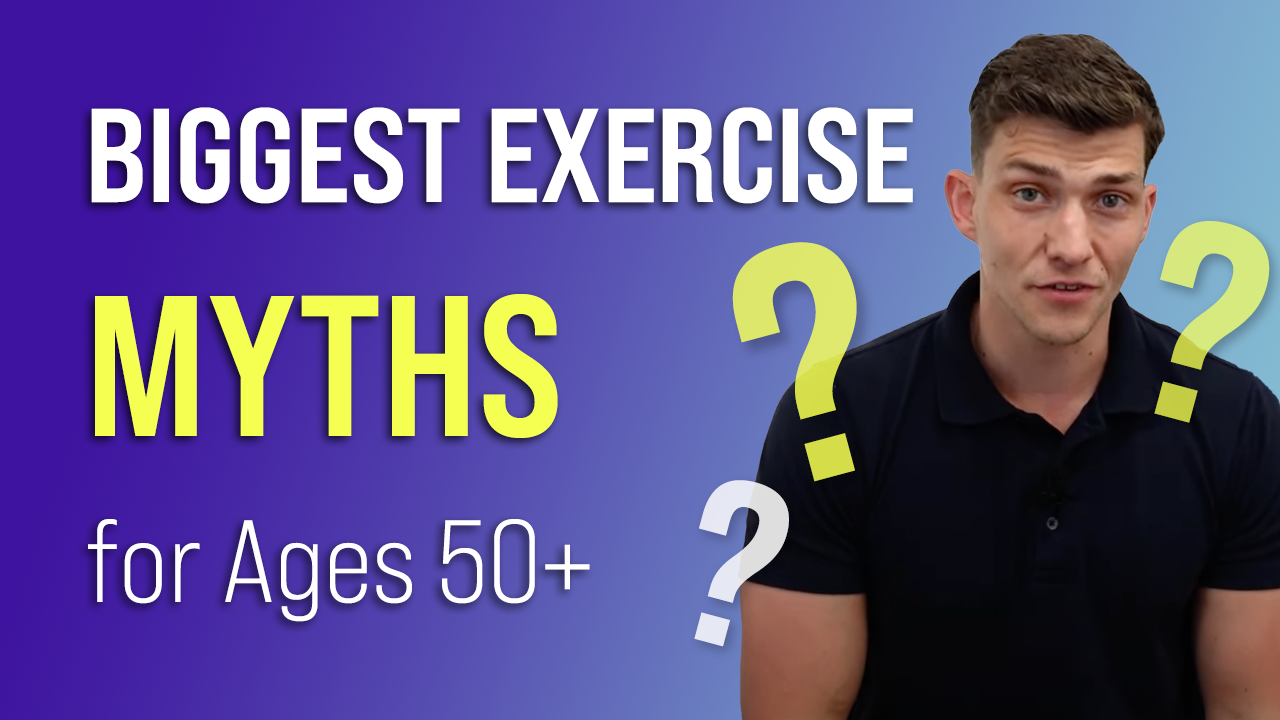
Muscle Gain Resistance Band Routine for Ages 50+

One Incredible Exercise to Fix Knee Stiffness (Ages 50+)
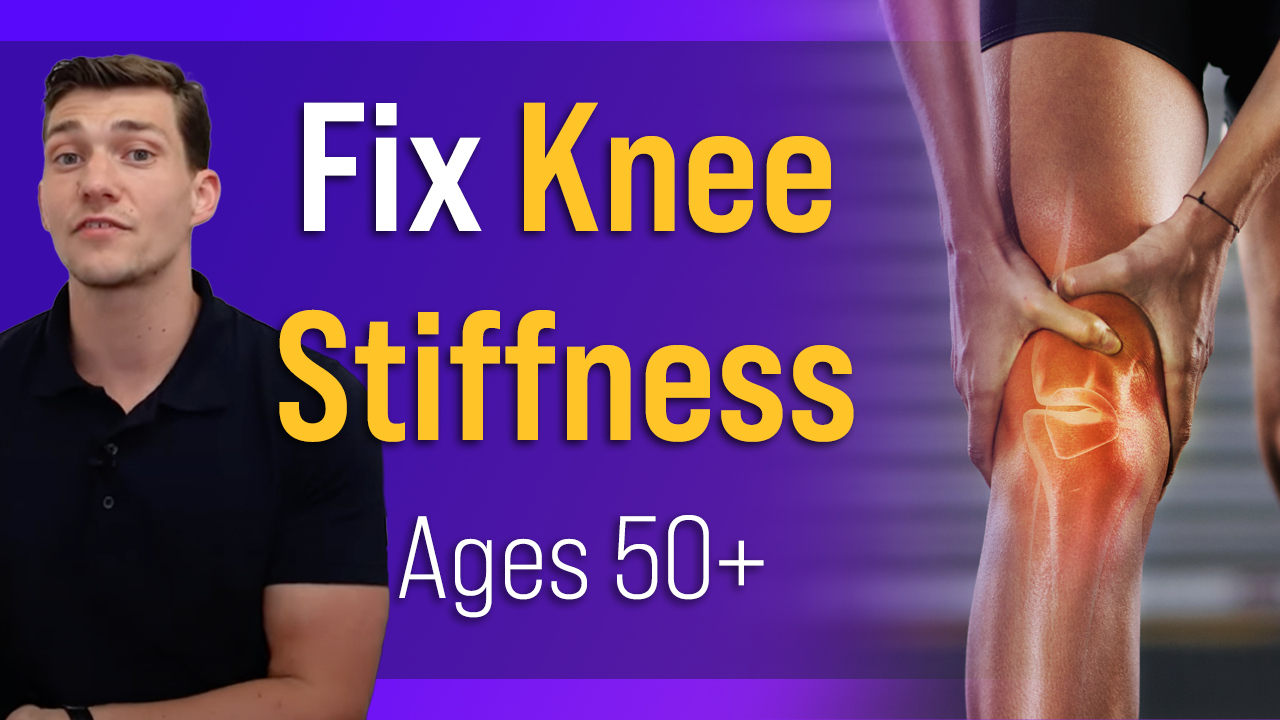
Build STRONG Hips: 10-min Routine (Ages 50+)

Dangerous Advice for Retirement (AVOID) | Ages 65+
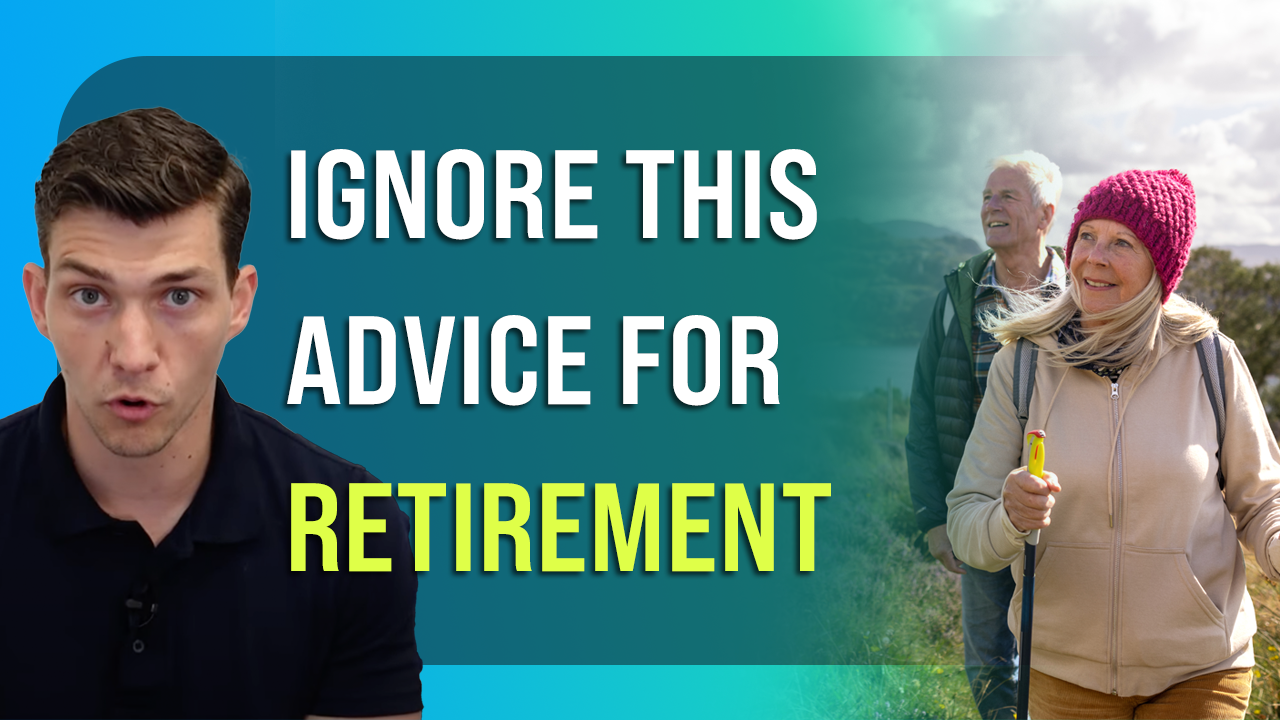
Fix Your Balance & Inner Ear: Vestibular Exercises (Ages 50+)

This Walking Mistake Leads to FALLS in Ages 65+
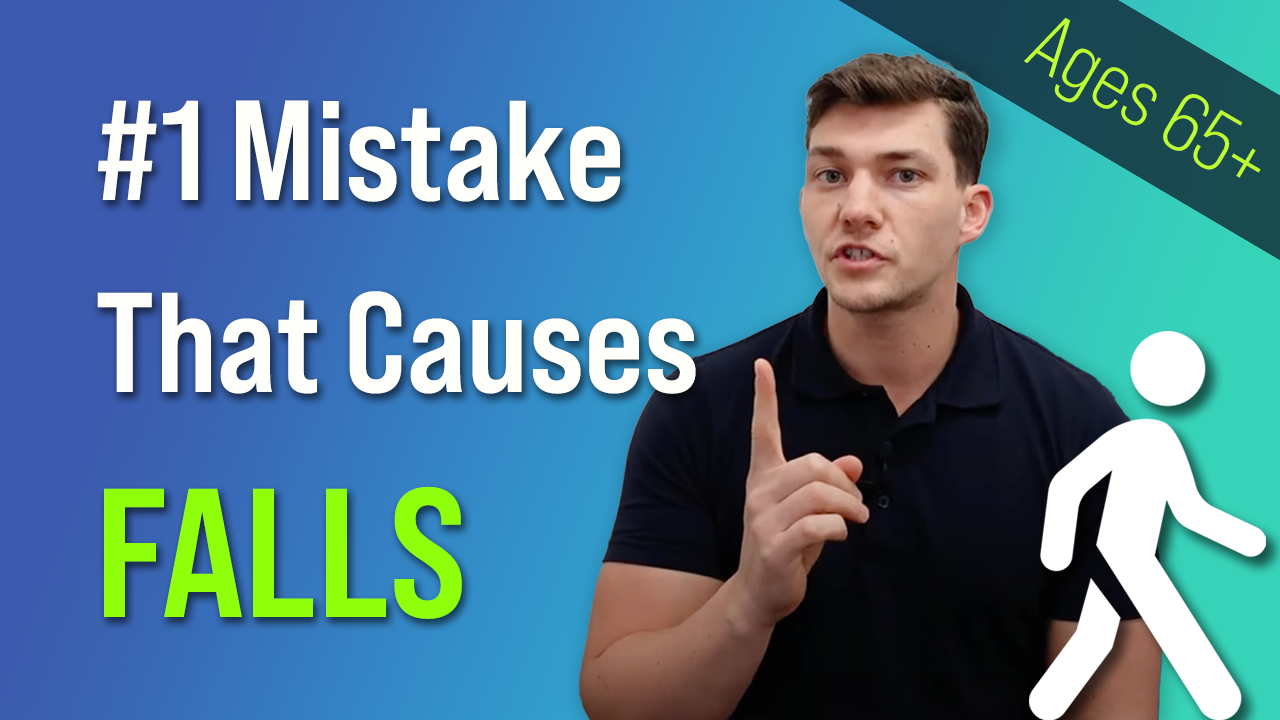
NEVER Allow Yourself to Think THIS (Ages 50+)

Find More Videos & Blog Posts to Help a Painful Problem Here!
Watch will harlow talk live at farnborough wi.
In this recent live talk at the Farnborough WI, Will reveals some of the secrets he shares with his clients to help them remain mobile, active and pain-free over the age of fifty:
Visit Our Location
Give us a call, send us a message, opening hours.
Helping People In Pain Get Their Lives Back And Live It To The Max
Our Mission
Our philosophy.
At Lake Therapy, Kat and the team specialise in providing care for people with muscle or joint pain and mobility issues.
Our team of professional Physiotherapists and Sports Therapists are dedicated to serving your health needs. Whether you are suffering from back pain, neck pain, headaches, recovering from an accident or injury, or looking to improve your overall wellbeing, we are here to help you achieve your goals on the road to better health.
Our Approach
At Lake Therapy our approach is simple; it’s about getting you back to living your life to the max.
Attending Physio & Sports Therapy can be daunting if you've never experienced it before! Our warm and welcoming team will provide you with all the information you need to have a successful visit with us. Our clinic offers a multidiscipline approach with a highly qualified, experienced, and knowledgeable team.
Keeping your body and mind nourished is one of the most valuable things you can do for yourself. Whilst people that seek us out are often in pain, we are also committed to keeping up your ongoing wellness.

Our professional front desk staff and state registered practitioners are here to give you the warmest welcome possible. We offer a multidisciplinary approach with a highly qualified, knowledgeable and passionate team.
Founder and Head Physiotherapist Katrina Lake, has used her 16 years of experience to hand-pick some of the most talented Physio & Sports Therapists in the community.

Katrina Lake
Kat graduated in 2007 from Northumbria University with a BSc (Hons) in Physiotherapy. She now specialises in the treatment of people with scoliosis and runs CPD courses for other health care practitioners on the subject. She also enjoys taking care of pregnant ladies as she is mummy to two children herself.

Jack Bowden
Jack holds a BSc (Hons) degree in Sports Therapy from Bournemouth University. He has been a valued member of the Lake Therapy team since 2020 and specialises in the treatment of football injuries.

Ramona Dima
Ramona graduated from the University of Medicine in Bucharest, Romania with a BSc in Physiotherapy more years ago than she'd like to admit! She now specialises in pregnancy and post natal care, the management of lymphoedema, is our posture Queen and enjoys helping people with neurological challenges such as stroke and Parkinson's achieve maximum function in their lives.

Jack obtained his BSc (Hons) degree in Sports Therapy from Coventry University in 2019. He is a keen martial artist and gym goer and utilises massage, dry needling and cupping skills to help people recover from injury and achieve their potential.

Sidonie Underdown
Sid joined the Lake Therapy team as a clinic assistant in 2023 following a varied career including hair dressing and working as a GP receptionist. Sid is a talented artist and you will spot her works displayed around the clinic!

Michael Jacobs
Mikey graduated with a BSc (Hons) in Sports Therapy and has been a valued Lake Therapy team member for 2 years now. He is excellent at working with children and teenagers and has trained with Kat in the rehab of scoliosis. He also loves working with our older population. Outside of the clinic you'll find him playing ice hockey for Basingstoke and he also holds a world medal in Karate!

Holly Whiter
Holly holds a BSc (Hons) degree in Sports Therapy which she did after sustained injuries during her own high level swimming career as a teenager. She now regularly trains and competes in Cross Fit and looks after many Cross Fit athletes within the clinic. She also trained in scoliosis rehab under Kat and enjoys working with children and teenagers.

Ewa is the genius that keeps the practice running smoothly. She came in as a client at Lake Therapy and never left, and now enjoys helping others to improve their pain.

Hamid Dirinsamimifard
Hamid graduated with a BSc in Physiotherapy and has recently added an MSc in Sports and Exercise Rehabilitation. He specialises in the treatment of musculoskeletal and sporting injuries, as well as rehabilitation of neurological challenges such as stroke, spinal cord injury and Parkinson's Disease.

Bethan Waller
Bethan has been with us since the summer of 2021 and is an invaluable member of our CA team.

Dan is the co-founder of Lake Therapy and enjoys running the Marketing and Finance departments.

First Time Guests
Stage 1 - taking action, stage 2 - health selfie, stage 3 - release, stage 4 - activate, stage 5 - control, connect & maximise, frequently asked questions, how long will i need physical therapy.
The length of each physio stage will depend on the type of injury you have. Our brilliant physiotherapists will set you a bespoke Lake Therapy Care plan to suit your needs when you start with us so that you know how long the process will be.
What conditions does physical therapy treat?
Physiotherapy helps with a wide range of conditions, including back pain, headaches, neck pain and many more. You can visit our Services page for more information.
Do you have specialist therapists?
Yes! Lake Therapy has a team of 8 Physiotherapists and Graduate Sports Therapists. Between us our specialisms cover Sporting Injuries (including Cross Fit, Gymnastics, Dance, Hockey, Martial Arts, Swimming, Football and Golf), Pregnancy and Post Natal, Scoliosis, Post Surgical Rehab, Stroke, Parkinson's and Lymphedema management!
Please call us on 01252 449458 and speak to our friendly front desk to team to find the practitioner who's the best match for your needs.
How do I know if my health insurance covers physical therapy services?
At Lake Therapy we are proud to be a completely independent practice and do not contract to any private medical insurance companies. You may be able to claim your treatments back through your health insurance provider and we will be happy to provide you with receipts and practitioner registration numbers to assist you with this.
How do I cancel or reschedule my appointment(s)?
We have a 24hr free cancellation policy. You can cancel any of your appointments before this time without penalty by calling the front desk at 01252 449 458.

- Find a physiotherapist
- Sports injuries
- Rehabilitation exercises
- Keeping active and healthy

- Managing pain from home
- Incontinence
- Multiple sclerosis
- Osteoporosis
- Parkinson's
- Shoulder pain

- Join the CSP
- Forgotten your password?
- Courses and conferences
- Covid-19 guidance
- CPD and education
- Clinical evidence
- Research and evaluation
- Professional guidance
- Improvement and innovation
- Digital physiotherapy
- Practice-based learning
- Internationally trained physiotherapists

- Pay and conditions
- Support and representation
- Health and safety
- What you can do
- Workplace rights

- Nations and regions
- Diversity networks
- Independent practitioners
- Associates - support workers
- New graduates
- Safety reps
- Professional networks
- Higher education institution educators

- CSP in your area
- Get involved
- Shaping healthcare

- Latest news
- CSP Annual Conference
- Member webinar series
- Latest blogs
- Frontline magazine
- Press office
- Coronavirus
- Physiotherapy News email

- Become a physiotherapist
- Physiotherapy jobs
- What is physiotherapy?
- Advertise a vacancy
- Physiotherapy apprenticeships
- About CSP accreditation
- Become a support worker
- Advanced and consultant practice physiotherapy
- Career development
- Return to practice
- Working in the U.K

- How we're governed
- How we work
- Corporate strategy
- Working for us
- Equity, diversity and belonging
- Commercial opportunities
- Using the CSP brand

- Why a chartered physiotherapist?
- Find an expert witness
- Find a physio
- Physiotherapist specialising in health conditions
- Physiotherapists in major UK towns and cities
- What is first contact physiotherapy?
- Cricket injuries
- Cycling injuries
- Football injuries
- Golf injuries
- Rugby injuries
- Tennis injuries
- Love activity, Hate exercise? campaign
- Staying healthy as you age
- How to get more active
- Staying healthy at work
- Keeping children active and healthy
- Staying active at home
Jane Ireland
Practice details, 51.1930774, -0.818135, specialities.
Arthritis, Back, neck, joints and muscles, Home visits, Occupational Health / Desk assessment, Orthopaedics / Trauma, Sports physiotherapy, Women's health, Workplace health
Payment options

079 0609 8113 [email protected]
Kerry barrow specialist private paediatric physiotherapy.

Specialist Private Paediatric Physiotherapy
Kerry has 24 Years' experience in paediatric physiotherapy, bringing a depth of expertise which allows for excellence in analysis and input, with a gentle and play-orientated approach.
Being proactive with small concerns prevents them from developing into larger problems.
Call, text or email to discuss your child's needs with Kerry and book an appointment.
Expert in:
Developmental delay
- premature babies ; 'colic' ; delay in reaching milestones ; bottom shuffling
Neuro-physiotherapy
- cerebral palsy ; genetic syndromes ; metabolic conditions ;
Difficulties with posture and mov ement
- co-ordination, handwriting, concentration, sensory integration, dyspraxia (DCD) , hypermobility
Expertise and Experience in Long Covid & CFS ( chronic fatigue syndrome)
- assessm ent, therapy input for treatment and management, school/ medical support, treatment referrals
- back and neck pain , sprains and strai ns , post fracture rehabilitation
MONDAY: Wimbledon & Esher (School & home visits)
TUESDAY-FRIDAY: Farnham (Clinic-based sessions)
R emote consultations available where appropriate
What to expect :
fun, dynamic hands-on sessions
- technically focused and highly skilled physiotherapy input ... which appears to the child to be fun 'play'
- one-to-one, dynamic, tailored to your child
be motivated, supported, empo wered
- understand your child's presentation and needs
- activities to do at home
proactive, eff ect ive and multidisciplinary approach
- Holistic, NDT/ Bobath approach including elements of PT, OT, SLT
- Sensory integration therapy
- Musculoskeletal therapy
- Strength and treadmill training
Areas of Speciality

Child development
Premature
Feeling floppy or stiff
Flat head (Positional Plagiocephaly)
Head turned to one side (Torticollis)
Feet turned in (Positional talipes)
Poor body alignment (‘Moulded baby’)
'Colic'
Difficulties with posture or movement
tummy time, sitting, crawling, standing, walking
Bottom shuffling
Toe walking
Sensory-motor development
Hypermobility
Co-ordination
Gross Motor skills
Handwriting
Concentration
Sensory integration difficulties
Low muscle tone
Poor endurance
Difficulties sitting still
Back and neck pain
Sprains and fractures
Pre-and post surgery input

Long Covid & Chronic Fatigue Syndrome
Assessment, Support and Input:
Screening for POTS & MCAS
Therapeutic input
Lymphatic drainage
Red Light therapy
Respiratory / oxygen intake
Acupressure
ARC microcurrent therapy
Guided pacing
Post exertional fatigue
Chronic Fatigue
Sleep management
Gastroenterology links
Dietary and supplement support
Weakness and mobility loss
Managing
Hypersen sitivities
Skin rashes
Muscle and joint pain
Concentration difficulties
School and Medical team liaison
Treatment referral

Neurology Movement Disorders
Movement disorders
Too much movement
Too little movement
Poorly co-ordinated movement
Specialist in complex presentations
cerebral palsy
genetic syndromes
metabolic disorders
head injury
muscular dystrophy
post-infections
caused by inflammatory or autoimmune conditions
- Physiotherapy
- Speech and Language therapy,
- Occupational therapy,
- Sensory Integration Therapy,
- Musculoskeletal therapy,
- Orthotics and taping
- Treadmill training
- Strength training
- Highly targeted and experienced hands-on therapy.
- Dynamic, proactive and focused sessions.
- Liaison with school and medical teams
Intensive blocks offered
Kerry Barrow Physiotherapy
Tel: 079 0609 8113
Email: [email protected]
Success! I'll reply ASAP!
Areas Covered
Farnham based clinic
Hampshire, Surrey, Guildford & Petersfield
Home/school visits in Esher and Wimbledon
- Restaurants in Tomsk
- Tomsk Itineraries
- Tomsk Hotels
Weather and Seasons in Tomsk
- Tomsk Oblast
Best Time To Visit Tomsk
Worried about tourists flocking or closing hours of Tomsk while planning your trip? The best time to visit Tomsk would be a time when you can completely soak in the experience and not worry about such hassles. The weather of Tomsk is favorable along with the best of activities during this particular time in Tomsk. If you are thinking about when to go to Tomsk then, come visit Tomsk at it's best time where you can make a memorable experience without having to worry about small issues.
Tomsk Weather in January-February : With the air being damp (Humidity is 77%) and temperature being as low as -27℉ , you can expect cold weather on your visit to Tomsk in these months. The average temperature is 9℉ .
Tomsk Weather in March : The temperature is cold throughout the month, the average temperature being 26℉ . The air is slightly humid and expect to feel colder than usual. Unless you are very sure about the activities you want to do, this is not a very ideal time to visit Tomsk.
Tomsk Weather in April : The temperature swings between 3 degree celsius to 10 degree celsius with average temperature being 39℉ . The air is slightly humid, making it feel colder than actual. Carrying layered clothing is recommended.
Tomsk Weather in May : Warm and pleasant day time temperatures, coupled with right amount of dampness in the air makes May the best time to visit Tomsk. The days are sunny, and the average temperature is 52℉ which is just perfect to put on those sneakers and go exploring Tomsk.
Tomsk Weather in June : With average humidity of 65%, temperatures sway between 37℉ to 90℉ . Now this may cause a little discomfort, but we are sure not complaining! This weather is perfect to go sightseeing around the city of Tomsk.
Tomsk Weather in July-August : An excellent season to visit Tomsk, the average temperature falls around 62℉ . The weather is great for outdoors, the air being moderately humid. This is most likely one of the best times to visit Tomsk and also a tourist high season.
Tomsk Weather in September : Temperatures ranging from 32℉ to 68℉ call for delightful afternoon explorations of Tomsk. Mornings and evening can be a tad difficult to get out owing to the humidity reaching 80% making the weather cooler. Perfect to bank on all that napping!
Tomsk Weather in October-December : With the air being damp (Humidity is 81%) and temperature being as low as -40℉ , you can expect cold weather on your visit to Tomsk in these months. The average temperature is 22℉ .
- 20℉ 0℉
Highest temperature in Tomsk is recorded as 89.6℉ in June.
Lowest temperature in Tomsk is recorded as -40℉ in December.
Most humid month in Tomsk is November.
Least humid month in Tomsk is May.
An official website of the United States government
The .gov means it’s official. Federal government websites often end in .gov or .mil. Before sharing sensitive information, make sure you’re on a federal government site.
The site is secure. The https:// ensures that you are connecting to the official website and that any information you provide is encrypted and transmitted securely.
- Publications
- Account settings
The PMC website is updating on October 15, 2024. Learn More or Try it out now .
- Advanced Search
- Journal List
- HHS Author Manuscripts

Knowledge, attitudes and practices of physicians in Tomsk Oblast Tuberculosis Services Regarding Alcohol Use Among Tuberculosis Patients in Tomsk, Russia
Trini a. mathew.
Division of Infectious Diseases, University of Mississippi Medical Center, 2500 North State Street, Jackson, Mississippi 39216, United States of America
Alan L. Shields
Department of Psychology, East Tennessee State University, Box 70649, Johnson City, Tennessee 37614, United States of America
Aizhan Imasheva
1230 13th Street, Apt 918, NW, Washington, District of Columbia 20005, United States of America
Sonya S. Shin
Division of Social Medicine and Health Inequalities, Brigham and Women's Hospital, 651 Huntington Avenue, Boston, Massachusetts 02115, United States of America
Jennifer J. Furin
Sergey p. mishustin.
Tomsk Oblast Tuberculosis Services, R. Luxembourg 17, Tomsk, Tomsk Oblast, 634009, Russian Federation
Gennady G. Peremitin
Aivar k. strelis.
Tuberculosis and Pulmonology Department, Siberian State Medical University, Moskovky trakt 2, Tomsk, Tomsk Oblast, 634050, Russian Federation
Galina V. Yanova
Tomsk Oblast Clinical Tuberculosis Hospital, Ul. Novaya 1, Timiryazevo, Tomsk, Tomsk Oblast, 634510, Russian Federation
Shelly F. Greenfield
Harvard Medical School, Alcohol and Drug Abuse Treatment Program, McLean Hospital, 115 Mill Street, Belmont, Massachusetts 02478, United States of America
In recent years, the Russian Federation has seen a dramatic rise in morbidity and mortality from tuberculosis (TB), attributed in part to an increase in alcohol use disorders (AUDs), which are associated with worse TB treatment outcomes. This study describes the knowledge, attitudes and practices of physicians who treat TB patients in Tomsk, Russia. We conducted semi-structured interviews with 16 TB physicians and one addiction specialist. Interviews were audio-recorded, transcribed, translated, and systematically analyzed. We identified four key domains: definitions of alcohol use and abuse, and physicians' knowledge, attitudes, and practices regarding these problems. Physicians described patients as largely pre-contemplative and reluctant in seeking treatment. Physicians recognized their limited knowledge in diagnosing and treating AUDs but expressed interest in acquiring these skills. Few options are currently available for treatment of AUDs in TB patients in Tomsk, Russia. These findings suggest that Tomsk physicians are aware of the need to engage AUDs in TB patients but identify a knowledge gap that restricts their ability to do so. Training TB physicians to use simple screening instruments and deliver evidence-based alcohol interventions improve TB outcomes among patients with co-occurring AUDs.
Introduction
The impact of alcohol consumption on the declining health of Russians is well documented ( Bobak, et al. 1999 ) and alcohol use disorders (AUDs) play a synergistic role in the rising morbidity and mortality associated with co-occurring conditions such as cardiovascular disease ( Nilssen, et al. 2005 ; Ryan 1995 ), human immunodeficiency virus (HIV) ( Krupitsky, et al. 2006 ), and tuberculosis (TB) ( Ryan 1995 ). In particular, the rise in prevalence of both TB and AUDs is thought to be driven by the same underlying socioeconomic instabilities witnessed in Russia over the past fifteen years ( Farmer and Kim 1998 ; Kimerling 2000 ; Plavinski, et al. 2003 ; Walberg, et al. 1998 ; Zuger 2000 ). AUDs and alcohol use are tied to TB treatment outcomes in several important ways ( Nelson, et al. 1995 ). First, patients who drink alcohol are at increased risk of hepatotoxicity during TB treatment ( Dossing, et al. 1996 ; Fernandez-Villar, et al. 2004 ), leading to increased morbidity and to incomplete treatment; ( Pablos-Mendez, et al. 1997 ). Persons who use alcohol may also be at increased risk for becoming infected with and dying from TB ( Khomenko, et al. 1989 ; Razvodovskii Iu 2004 ; Zhamborov 1999 ). Although the detrimental effects of alcohol use on the Russian population are well known, current AUD treatment options are limited in three important ways. First, there has been an overall decrease in the number of AUD treatment facilities (dispensaries) from Soviet to post- Soviet era. Secondly, there are limited opportunities for research and evaluation of existing and new treatment modalities and a general lack of public support in addressing AUDs ( Nemtsov 2005 ). Third, training in TB and narcology (study of alcohol and substance use disorders and their management) are typically non-overlapping training grounds. For example, medical education training in Siberian State Medical University currently provides 87 hours of course work in pthisiopulmonology and 8 hours in a narcology course. Prior to 1998, only 4 hours of narcology training was provided ( Yanov, 2008a ). Further sub-specialization (fellowship) provides the necessary qualifications for working either as a narcolgist (addictions specialist) or as a pthisiatrist (TB physician). This includes three options: 1) complete one year internship in required clinical setting (e.g., in pthisiatry clinic/ hospital); 2) complete two years of “ ordinatura ” in clinical setting in desired specialty; 3) after completion of either internship or “ ordinatura ,” engage in three years of full time research in desired-specialty field or in a four year part-time research program.
Despite these challenges, in Tomsk, Western Siberia, TB services have improved with the implementation of treatment strategies like Directly Observed Treatment–Short Course (DOTS) (World Health Organization 2003 ) and DOTS-Plus ( Farmer and Kim 1998 ); however, AUDs and alcohol consumption continue to severely compromise TB treatment and are associated with poor TB treatment outcomes ( Dewan, et al. 2004 ; Mathew, et al. 2006 ; Shin, et al. 2006 ). The treatment challenges posed by AUDs among TB patients in Tomsk have been acknowledged for more than 30 years ( Yanova 1994 ). Efforts were undertaken in 1987 to address this issue by establishing a specialized closed-door or ‘locked’ unit for treatment of TB in patients with co-occurring AUD. Yet, this specialized unit was closed in 1994 due to high costs associated with maintaining it. Moreover, many of the patients had active alcohol and substance use and this led to disruptions of the hospital regimen further compromising treatment potential. Since 1994 one full time narcologist is on staff at the TB Oblast hospital to provide care ( Yanov, 2008b ). However, given the growing complexity of the problem, novel approaches are increasingly needed. For example, to improve TB outcomes among patients with TB and AUDs, it is suggested that non-addiction specialists (e.g. TB physicians) become more aware and better skilled at managing co-occurring AUDs ( Schoeman, et al. 1994 ). Unfortunately, practitioners who treat TB and other medical problems usually do not address alcohol consumption or diagnoses as part of their routine medical care in Russia ( Fleming 1996 ).
This paper provides and interprets qualitative data about the knowledge, attitudes, and practices of physicians in Tomsk regarding AUDs in their TB patients. This data can be used in several important ways. First, understanding the current perceptions of TB physicians regarding diagnoses and treatment of AUDs can help bring about integration of AUDs treatment with TB care. Secondly, this data may illuminate barriers to care for AUDs and possible methods to improve TB treatment programs.
Study setting
Tomsk is the capital of the Tomsk Oblast (province), located in Western Siberia, with an area of 316,900Km 2 and a population of 1,060,800. In response to a growing TB epidemic, a DOTS program in Tomsk was started in 1994 (Mawer, et al.) and treatment of multidrug-resistant TB (MDR-TB) was initiated in 2000, with technical assistance provided by the non-profit organization Partners In Health to the Tomsk Oblast TB physicians ( Shin, et al. 2006 ). In the DOTS program for drug-susceptible TB, patients receive four first-line anti-TB drugs and are treated for a total of six months. Patients with MDR-TB receive second-line anti-TB drugs for 18 to 24 months. In Tomsk, most patients are hospitalized for at least the first two to four months of TB treatment. Subsequent treatment is carried out either in the polyclinic or in the day hospital.
Respondents
A total of 17 physicians were interviewed in the present study: 16 TB physicians and one narcologist (addiction specialist). One TB physician declined participation. Each of the participants works at one of three sites where TB care is provided: a TB day hospital, a TB polyclinic, and the Tomsk Oblast TB hospital. A convenience snowball sample was used to identify study respondents.
Interview and Surveys
Verbal informed consent from each participant was obtained prior to interview and all interviews were audio-recorded, transcribed in Russian, and translated verbatim into English. Data was obtained by interviewing physicians using a semi-structured, open-ended questionnaire. Information gathered included physicians' knowledge, attitudes and practices related to AUDs among TB patients. For the purposes of this study, the physicians' individual subjective definitions of alcohol use and abuse were used to describe alcohol use and abuse among their TB patients. All 17 physicians were interviewed individually in a private setting. All interviews were reviewed and coded using these primary domains by the authors (TAM, JJF) trained in ethnography and AUD assessment. These interviews were then again reviewed and coded a second time by the same authors. The procedures were approved by the Partners Human Research Committee in Boston, MA.
Based on participant observation and key informant interviewing, we identified four main domains for analysis: physicians' 1) definitions of alcohol use and abuse, 2) knowledge, 3) attitudes and 4) practices. The second round of coding included the assignment of sub-domains, which are listed in Table 1 . The frequencies of each response that participants mentioned in the sub-domain are also included in Table 1 . There were many definitions of AUDs, as listed in Table 1 . We provide further details, including direct quotations, on sub-domains mentioned by at least 50% of the physicians, as well as additional key findings of our interviews.
Sub-domains with respective response frequencies among TB physicians (N=16)
TB Physicians' Definitions of Patients' Alcohol Use and Abuse
When asked about how they evaluated consumption patterns (e.g., quantity and frequency of alcohol use), participating physicians explained that patients reported intake in vague terms. For example, “How much is ‘a little?’ … 100-200 gram [milliliters], it can be a glass or so ….” Another physician stated, “I don't know about [measuring alcohol intake]. Everything is individual …. Everybody has his own taste.” Another physician considered body weight of the patient: “A lot depends on the weight of the patient … On average [people typically consume] probably a bottle [of alcohol], that is half a liter …. This is not necessarily for one person. If … two of them have drunk a bottle, then [the intake would be] 250 gram [milliliters] alcohol per person.” Thus, definitions of what constitutes a standard drink varied from physician to physician, indicating a need for standardized definitions of consumption and guidelines for its assessment.
TB Physicians' Knowledge of Alcohol Use and Available Treatment Modalities
Although most TB physicians reported that they felt comfortable talking about alcohol use with their TB patients (11/16, 68.8%), 7 (43.8%) of them acknowledged inadequacy in their knowledge and skills in effectively treating patients with TB and co-occurring alcohol problems. In fact, some reported an initial hesitation in addressing alcohol use with their patients. As one physician described:
When you take an ordinary, socially adapted individual away from his … community, and put him in a TB hospital, it turns into a tragedy. If I ask this patient about drinking alcohol, I could simply open that way. This topic will simply provoke a negative attitude toward the TB doctor. So, at first I tend to avoid a detailed search into the matter. Of course, when I see that the patient tries to break the rules and starts drinking alcohol, abusing alcohol, I think it is time to do all that I can.
Physicians also reported awareness of patients obtaining alcohol even while hospitalized in the TB hospital. As one noted, “They go out to buy alcohol; they bring the alcohol to the ward and put it on the table. They arrange some food and start drinking right in the ward. They do it at any time – day or night.” Another stated: “Moreover, they sell substitutes, not the pure, natural, good quality alcohol, and patients poison themselves with this stuff. It may have all kinds of admixtures in it, it's not alcoholic intoxication. This stuff drives patients to a somewhat crazy state, when they can do almost anything.” Physicians reported that episodes of drinking in the hospital often occur on days when patients get their financial support:
We have a real catastrophe on the day they get their pensions. You see, it's terrible. They don't want to buy something to eat – fruit, vegetables or meat. They buy alcohol, and there's nothing we can do about it, because all these shops with alcohol are open 24 hours a day. We have the [hospital] doors closed, we have windows with bars, but they even jump down from the second floor. They climb down using sheets…”
TB physicians also reported that although patients receive nutritional support as part of TB treatment, sometimes patients trade their food packets for alcohol. One physician reported:
Everything they get to eat is packed, so they can sell it. We've tried to open the cans so that they wouldn't be able to sell it … so that patients would [eat] their rations. But patients raised a roar: ‘Why do you open them? I, for instance, wanted to have my condensed milk boiled, and you give me a can that is open! I wanted this and that…’ So we gave it up because they claim we are violating human rights. They know their rights pretty well, but not their obligations and duties. Their rights they do know well enough!
The majority (9/16, 56.3%) of TB physicians demonstrated an awareness of alcohol detoxification treatment variously defined as infusion therapy with glucose, vitamins (including vitamin B and C) and benzodiazepines. Yet, only three TB physicians (19%) were aware of any rehabilitation or follow-up treatment available in Tomsk and only 4 of the physicians interviewed (25%) were aware of support groups, including Alcoholic Anonymous, as a form of treatment for AUDs.
Thus, TB physicians are aware of patients' easy access to alcoholic beverages, and the challenges this poses in treatment of AUDs among TB patients. And although TB physicians have tried to decrease the consumption of alcohol by their patients, they have faced resistance from their patients. Despite their awareness of problematic alcohol use among their patients, the physicians remain relatively unaware of potential treatment options available to them.
TB Physicians' Attitudes to Patients' Alcohol Consumption
Half of the participating TB physicians (8/16) felt that alcoholism is a disease, as compared to five (31.3%) who considered it to be a habit (three did not address this issue). One physician considered drug addiction as the bigger problem and said, “Drug addiction is the most terrifying thing … alcoholism is nothing! You sleep off your drunkenness and that's it …” Most physicians felt that their patients did not consider themselves alcoholics (13/16, 81.3%). As one volunteered, “Many [patients] believe alcohol facilitates process dissolution,” referring to the notion that since alcohol is a disinfectant, it should help in the resolution of pathological processes like TB. In other words, some TB patients feel that alcohol will cure TB. Another respondent stated, “Many of our patients don't think about it. They don't see alcohol abuse as a problem at all. They do not accept the fact of alcohol abuse and its negative influence on their life. They do not see the problem.”
Given that TB physicians have tried different methods to address AUDs in their patients, but only see very marginal success, they expressed frustration with the widespread nature of this condition. As one stated, “We can't close all the stores and shops that sell drinks. We appealed to the police many times about it but haven't received any help …. They said that as long as spirits can be bought, they are going to sell them, that's all. And that's our problem.” Some reported emotional and physical burnout. “I cannot stand such dissipated, disobedient people. They don't want to be treated. I visit them and cannot attract them to get treatment. Then, I get tired, and I don't want to see any of them.” Another noted, “Well, time passes, time cures, as they say …. I'm getting sick. You see, I have already been on sick leave. After you are sick, on sick leave, then you recover, and again come to work.” Frustration and burnout among TB physicians are compounded by low wages. One physician reported: “It is a huge emotional burden for the doctor.” Another elaborated:
We don't receive any material satisfaction from this work. We have such poor material status, for the amount of emotional energy that I spend on the patient for the money that I receive. I can't take a vacation …. It seems that I work at my loss …. I would have a rest for one week, take a vacation, and then return to work for one year.
Despite these challenging working conditions, physicians demonstrate a strong commitment to their patients. For example, one physician reported, “If we TB doctors speak rudely to the patient, then he will not come back…Of course our main goal is to cure [him], to bring him back to the community as a healthy person.” Another noted, “If there is no material satisfaction, then it would be good to get moral satisfaction, because you've helped the person, called him, treated him. [When] he thanks you, it warms your heart.”
TB Physicians' Practices Connected to Patients' Alcohol Use
Physicians reported diagnosing AUDs based on their clinical encounter with the patient as opposed to using a systematic screening instrument. The most common ways of identifying an AUDs was by observing physical signs of alcohol use (12/16; 75%) and asking patients about alcohol use during their initial patient evaluation (12/16, 75%). As noted by one respondent, an AUD is identified when there is:
… objective evidence because the patient comes for evaluation and sometimes he has elementary evidence. There is the smell of alcohol on the patient, for example, if he drank the day before. Sometimes, for example, if he has been drinking for long time, there is objective evidence like withdrawal syndrome, such as a hand tremor or high blood pressure. The patient feels bad, he has fatigue, or for example, skin redness.
Another noted, “First of all it is the smell of alcohol from a patient. Well, his habitus is untidy. It means that he doesn't comply with the treatment regimen.” Another respondent noted, “Sometimes when you open a ward door [to a patient's room in the hospital], the vapor of alcohol blows into your face, or you see the patient drunk as a skunk, or as we say, he shows symptoms of alcoholic intoxication with such a smell that is almost impossible to vent out of the room….” Other means of diagnosing patients with AUDs included failure to come to clinic appointments (5/16, 31.3%) and witnessing an intoxicated patient during home visits (5/16, 31.3%). As one physician noted, “They may come in just tipsy, but once they are on a binge, they do not come for treatment at all.”
Half of the physicians reported advising their patients repeatedly to stop drinking during TB treatment (8/16, 50%). One physician described talking with patients about alcohol use and its detrimental effect on TB treatment outcomes stating, ‘“Why are you drunk?” We explain the situation to the patient …. ‘You're in the hospital under treatment. You have this and that; you were lucky to get enrolled in this program. You should appreciate it’ – and so on. We tell him about the advantages of this program, how much it costs …” Physicians acknowledge that this type of counseling often does not help their patients. “You know, in general they react not too badly. They promise [to stop drinking]. In general, alcoholics, they are friendly. But when you try to talk with them several times on this theme, then they become aggressive, like ‘I do what I want to do!’” The lack of impact of repeated advice on alcohol outcomes is attributed by the TB physicians, in part, to the fact that the patients themselves do not believe that alcohol consumptions negatively affects their TB or treatment outcomes.
Both the TB physicians and the narcologist were asked to describe alcohol interventions currently available for treatment of their patients. Treatment was divided into two categories: 1) detoxification, described previously as the infusion of normal saline, vitamins, and use of sedatives and 2) rehabilitation or the management of a patient to reduce alcohol consumption or avoid relapse. The most common rehabilitation intervention reported by physicians was aversion therapy, or the use of medications that induce an unpleasant sensation when alcohol is ingested. The intent of this treatment is to discourage patients from drinking. The narcologist is the primary prescriber of these treatments and most commonly used medications are disulfiram and metronidazole. Another treatment described and commonly practiced in Tomsk was “implantation or method of instrumental psychotherapy” which often involves the use of placebo. As stated by one physician, “We used the implants, the drug was called Esperal (disulfiram). We had the implants produced in France and in Russia …. [Currently, due to lack of availability] we rarely perform implantation, only when the family gets it [disulfiram implants]. More often we implant a placebo.” Placebo implantation is:
… nothing but a few catgut stitches. The method of instrumental psychotherapy, which we use, requires a psychological impact on the patient. He is told that on an appointed date he will undergo an operation, that he will receive a ‘super-implant.’ Many of [the patients] have heard about implants before. Some of them do believe in it, others don't. But those who do believe and come and ask for it, we know they are psychologically prepared for it. Our job is to prepare the patient for manipulation, to explain the effect of the so-called implant. We play our role in the show, we do not fake it, even with placebo. In order to increase the effect, we sometimes use Pyrogenal that provokes temperature rise, so that the patient feels that there is something wrong with him. Or we can introduce some medications, such as Cordiamin intravenously, or calcium chloride, or magnesium … [for] their effect, the feeling of heat. These are the medications that give such a sensation. So after the manipulation we give the patient some alcohol to inhale or to wash his or her mouth. When they develop a reaction to the injection, they are told that this is the effect of implant triggered by alcohol. When they feel heat, mild pain and irritation, the doctor explains that the implant effect is dose-related. Thus we make them fear the consequences of drinking, promising it to be much worse or even fatal – a lethal outcome. This method is very effective in susceptible people … we implant placebo in alcoholics with TB and without it too.
Many TB physicians observed that patients are often resistant to being evaluated by a narcologist (8/16, 50%). As one TB physician noted, “[They say,] ‘Why do you refer me there? I don’t drink!’” Another physician stated, “Unfortunately, you know as a rule, [patients] do not want to go there. Those who are domestic drinkers come at least for doctor's appointments and receive treatment, those who suffer from alcohol dependence syndrome, those who drink hard …. [But,] they do not think that they need a narcologist's consultation or [alcohol] treatment.”
Given that TB physicians in general can seek the help of police to locate patients when they miss TB treatment, half of the physicians (8/16, 50%) have turned to policemen for getting patients back to TB treatment. As one reported, “My main request is for them [the police] to speak with my patient and help me while they are talking to him to involve the patient in treatment.” Another noted “[When a police officer] talks to a patient, [when] the patient sees a police officer in uniform, he has an absolutely different attitude toward them because our patients are usually registered with the police, and they try their best. They obey the police, yes.” Inside the hospital, physicians can request police help for security issues. “If a patient begins to breach compliance, we have a red button. When we press it, a police squad comes and ‘cleans house.’ Well, they conduct an educational conversation, drive out all strangers, because … if there are some festivities in the department, strangers may come from all different places, [who are] not patients at all.” Some physicians did feel that police assistance was not enough to address this widespread epidemic, and expressed a desire for other legal recourses to mandate TB treatment.
This study reveals several interesting findings about the approach toward and management of AUDs by TB physicians and narcologist in Tomsk. First, alcohol use and alcohol problems are assessed chiefly among heavy drinkers only. There are several reasons for this: some TB physicians regard alcohol use as a “habit” and not a disease or disorder and diagnosis is only made in instances with clear evidence of active drinking, alcohol intoxication, and problematic use. Further, while most TB physicians do ask about alcohol consumption, no routine or standardized screening methods are used. Thus, patients who are at risk of developing abuse or dependence may not be identified and preemptive treatment and counseling may not be offered to the groups at risk.
Second, physicians often feel that patients do not consider themselves as having an alcohol use problem and, therefore, are unwilling to adhere to referral recommendations or see a narcologist for treatment. If true, such attitudes may reflect an early stage of behavioral change (e.g., pre-contemplation) (Prochaska, et al.) among patients with TB and co-occurring AUDs. The finding that many physicians and patients regard alcohol use as a habit rather than a disease or behavioral problem perhaps reflects a larger minimization of the importance of viewing alcohol use and AUDs as health problems requiring medical treatment.
Another important finding is that the knowledge and skills of TB physicians in treating AUDs are restricted, in large part because narcologists, and not TB physicians or general practitioners, are responsible for the diagnoses and management of AUDs. Indeed, most TB physicians were not completely aware of existing alcohol treatment options in Tomsk. Fortunately, TB physicians recognized this deficiency and expressed interest to learn more. Furthermore, despite the challenges and frustrations faced by providers, most informants described a strong commitment to their patients.
Current treatment measures for AUDs in Tomsk are widely considered ineffective. TB physicians expressed a desire for increased social and legal measures to enhance patient treatment. Both the narcologist and TB physicians described a heavy reliance on treating AUDs with aversion therapy using medications such as disulfiram, metronidazole, and placebo implantation. These methods differ from alcohol interventions available and used in other countries. Another barrier to effective treatment is the limited drug availability and high cost of medications, which must be bought by the patients themselves.
This study has some limitations given that the sample size is small and is a convenience sample rather than a random selection. In addition, these participants may not be representative of TB physicians in other parts of Russia. However, this small study serves as a useful first step and tool to guide development of more formal questionnaires that could be applied to larger populations. Another limitation of this study is its reliance on self-reported attitudes and behaviors of physicians, which, as has been suggested, may not accurately reflect what is actually practiced ( Saitz, et al. 2002 ). Furthermore, the physician participants may have subjective bias on addressing the issue of AUDs more broadly. For example, these biases may be attributed to the physician-centered treatment approach in which the physicians were trained; physician perceived low levels of patient literacy, and minimal financial support for their work, which contributes to emotional and professional burnout. Other factors that may have influenced physicians' perceptions include incomplete understanding of the etiology and clinical presentation of AUDs and considering AUDs as a behavior of a person as opposed to a medical condition or disease with available treatments. The use of participant observation in the present study, however, provided for direct witnessing of some events described, and thus allowed for triangulation of the data and increased validity.
Despite these limitations, this study had several key findings. Many patients were described to be in a precontemplative stage of behavior change (i.e., most did not overtly acknowledge a problem with alcohol or any intention to change their drinking) and were therefore reluctant to be evaluated by a narcologist. TB physicians expressed a strong commitment to their patients and a keen interest in learning more to address and treat AUDs among TB patients. Based on these findings we have worked with the Tomsk TB and alcohol services to implement the following improvements in patient care:
- (1) TB physicians have implemented a systematic screening instrument for all new TB patients – the Alcohol Use Disorders Identification Test (AUDIT) ( Babor, et al. 2001 ; Mathew, et al. 2008 ; Mathew, et. al. 2008 ). This instrument can be used to identify hazardous and harmful patterns of alcohol consumption and provide a preliminary diagnosis of abuse or dependence. Diagnosing patients at risk for developing alcohol abuse or dependence could facilitate alcohol interventions when alcohol problems are at a less severe stage. Such screening can also prompt more in-depth evaluation of alcohol problems and their consequences. Ongoing education of providers is aimed at identifying an AUD as a medical disease and not merely a social habit.
- (2) We are working to introduce evidence-based interventions to treat AUDs. First, providers are being educated on existing resources, such as rehabilitation programs and support groups. Because patients rarely express interest in seeing a narcologist, and TB physicians are motivated to be more involved in the management of AUDs, TB physicians will be trained to administer Brief Interventions to address alcohol use, while seeing patients for their TB treatment. The most salient ingredients in our physician training model include both didactic instruction and practical experience with the transtheoretical model of change (with emphasis on understanding the stage of change variable) ( Prochaska, et al. 1992 ), motivational interviewing style and skills ( Miller and Rollnick 2002 ), and the A's construct (“assess,” “advise,” “agree,” “assist,” and “arrange”; ( Glyn and Manley 1989 ) which has been endorsed by the United States National Institute on Alcohol Abuse and Alcoholism (NIAAA) for use among primary care physicians treating patients with AUDs ( NIAAA 2003 ).
- (3) We have worked with the Global Fund to Fight AIDS, Tuberculosis and Malaria (GFATM) to provide free AUD treatment to TB patients with AUDs. We hope that the elimination of prohibitory patient costs will not only increase patient willingness to engage in alcohol treatment but also increase the willingness of TB physicians to refer these patients to specialized care.
The Tomsk TB physicians continue to address this formidable issue among their TB patients despite facing many daily challenges and logistical barriers. Based on this study we determined that pharmacotherapy may be acceptable to both patient and physician. Thus, we are exploring the feasibility of administration of naltrexone singly or in combination with behavioral therapy for treatment of AUDs during TB treatment. With regard to the latter, it is hypothesized that the non-conventional behavioral interventions will be better tolerated and therefore more effective when couched in the framework of a conventional treatment approach.
To facilitate this, we are now conducting a pilot study in the use of naltrexone concomitantly with anti-TB medications. The physicians of the Tomsk TB-Alcohol Working Group are also implementing a Phase III trial supported by the US NIAAA, to determine optimal treatment strategies for AUDs – pharmacotherapy and behavioral therapy during routine TB care. Results of this work could have significant impact in improving our understanding of implementing effective strategies in treating co-occurring AUDs and TB not only in Tomsk Oblast, but also in other settings with high prevalence of both these disorders.
Acknowledgments
The authors would like to thank all the physicians who participated in this study; Dr. Sergey Yanov for technical advice; the Eli Lilly Foundation for funding and travel support (TAM); and the National Institute on Drug Abuse for research support (SFG; grant K24DA019855).
Guarantee of Originality: The manuscript being submitted represents the product of lengthy original research and analysis by the authors. It is not published or submitted for review elsewhere.
Contributor Information
Trini A. Mathew, Division of Infectious Diseases, University of Mississippi Medical Center, 2500 North State Street, Jackson, Mississippi 39216, United States of America.
Alan L. Shields, Department of Psychology, East Tennessee State University, Box 70649, Johnson City, Tennessee 37614, United States of America.
Aizhan Imasheva, 1230 13th Street, Apt 918, NW, Washington, District of Columbia 20005, United States of America.
Sonya S. Shin, Division of Social Medicine and Health Inequalities, Brigham and Women's Hospital, 651 Huntington Avenue, Boston, Massachusetts 02115, United States of America.
Jennifer J. Furin, Division of Social Medicine and Health Inequalities, Brigham and Women's Hospital, 651 Huntington Avenue, Boston, Massachusetts 02115, United States of America.
Sergey P. Mishustin, Tomsk Oblast Tuberculosis Services, R. Luxembourg 17, Tomsk, Tomsk Oblast, 634009, Russian Federation.
Gennady G. Peremitin, Tomsk Oblast Tuberculosis Services, R. Luxembourg 17, Tomsk, Tomsk Oblast, 634009, Russian Federation.
Aivar K. Strelis, Tuberculosis and Pulmonology Department, Siberian State Medical University, Moskovky trakt 2, Tomsk, Tomsk Oblast, 634050, Russian Federation.
Galina V. Yanova, Tomsk Oblast Clinical Tuberculosis Hospital, Ul. Novaya 1, Timiryazevo, Tomsk, Tomsk Oblast, 634510, Russian Federation.
Shelly F. Greenfield, Harvard Medical School, Alcohol and Drug Abuse Treatment Program, McLean Hospital, 115 Mill Street, Belmont, Massachusetts 02478, United States of America.
- Babor TF, et al. World Health Organization, Department of Mental Health and Substance Abuse; 2001. The Alcohol Use Disorders Identification Test (AUDIT): Guidelines for Use in Primary Care. [ Google Scholar ]
- Bobak M, et al. Alcohol consumption in a National Sample of the Russian population. Addiction. 1999; 94 (6):857–66. [ PubMed ] [ Google Scholar ]
- Dewan PK, et al. Risk factors for death during Tuberculosis Treatment in Orel, Russia. International Journal of Tuberculosis & Lung Disease. 2004; 8 (5):598–602. [ PubMed ] [ Google Scholar ]
- Dossing M, et al. Liver injury during Antituberculosis Treatment: An 11-Year Study. Tubercle & Lung Disease. 1996; 77 (4):335–40. [ PubMed ] [ Google Scholar ]
- Farmer P, Kim JY. Community Based Approaches to the control of Multidrug Resistant Tuberculosis: Introducing “DOTS-plus” Bmj. 1998; 317 (7159):671–4. [ PMC free article ] [ PubMed ] [ Google Scholar ]
- Fernandez-Villar A, et al. The influence of Risk Factors on the severity of Anti-Tuberculosis Drug-Induced Hepatotoxicity. Int J Tuberc Lung Dis. 2004; 8 (12):1499–505. [ PubMed ] [ Google Scholar ]
- Fleming PM. Drug and Alcohol User Treatment/Intervention Services in Russia--a Western perspective. Subst Use Misuse. 1996; 31 (1):103–14. [ PubMed ] [ Google Scholar ]
- Glyn TJ, Manley MW. How to Help Your Patients Stop Smoking: A Manual for physicians (NIH publication no. 89-3064) Bethesda, MD: National Cancer Institute; 1989. [ Google Scholar ]
- Khomenko AG, et al. Alkogolizm i Tuberkulez Legkikh. Vestnik Akademii Meditsinskikh Nauk SSSR. 1989;(2):50–8. [ PubMed ] [ Google Scholar ]
- Kimerling ME. The Russian Equation: An Evolving Paradigm in Tuberculosis Control. International Journal of Tuberculosis & Lung Disease. 2000; 4 (12 Suppl 2):S160–7. [ PubMed ] [ Google Scholar ]
- Krupitsky EM, et al. Co-Morbidity of Infectious and Addictive Diseases in St. Petersburg and the Leningrad Region, Russia. European Addictions Research. 2006; 12 (1):12–19. [ PubMed ] [ Google Scholar ]
- Mathew TA, et al. Causes of death during Tuberculosis Treatment in Tomsk Oblast, Russia. Int J Tuberc Lung Dis. 2006; 10 (8):857–63. [ PubMed ] [ Google Scholar ]
- Mathew TA, et al. Integration of Alcohol Use Disorders Identification and management, during Routine Care of tuberculosis (TB) patients in the Tomsk Oblast TB program, Russia. European Journal of Public Health. 2008 Accepted for publication in 2008. [ PMC free article ] [ PubMed ] [ Google Scholar ]
- Mathew TA, et al. Performance of the Alcohol Use Disorders Identification Test Among Tuberculosis Patients in Russia. Substance Use and Misuse. 2008 Accepted for publication in 2008. [ PMC free article ] [ PubMed ] [ Google Scholar ]
- Mawer C, et al. Comparison of the effectiveness of WHO Short-Course Chemotherapy and Standard Russian Antituberculous Regimens in Tomsk, western Siberia. Lancet. 2001; 358 (9280):445–9. [ PubMed ] [ Google Scholar ]
- Miller WR, Rollnick S. Motivational Interviewing: Preparing People for change. Book Review. Journal of Studies on Alcohol. 2002; 63 (6):776–777. [ Google Scholar ]
- Nelson S, et al. Alcohol, Tumor Necrosis Factor, and tuberculosis. Alcohol Clin Exp Res. 1995; 19 (1):17–24. [ PubMed ] [ Google Scholar ]
- Nemtsov A. Russia: Alcohol Yesterday and today. Addiction. 2005; 100 (2):146–9. [ PubMed ] [ Google Scholar ]
- NIAAA. Helping patients with Alcohol Problems: A Health Practitioner's Guide. National Institute of Alcohol Abuse and Alcoholism (NIAAA) 2003 [ Google Scholar ]
- Nilssen O, et al. Alcohol consumption and Its Relation to Risk Factors for Cardiovascular Disease in the north-west of Russia: The Arkhangelsk Study. Int J Epidemiol. 2005; 34 (4):781–8. [ PubMed ] [ Google Scholar ]
- Pablos-Mendez A, et al. Nonadherence in Tuberculosis Treatment: Predictors and consequences in New York City. Am J Med. 1997; 102 (2):164–70. [ PubMed ] [ Google Scholar ]
- Plavinski SL, Plavinskaya SI, Klimov AN. Social factors and increase in mortality in Russia in the 1990s: prospective Cohort Study. Bmj. 2003; 326 (7401):1240–2. [ PMC free article ] [ PubMed ] [ Google Scholar ]
- Prochaska JO, DiClemente CC, Norcross JC. In search of How People Change. Applications to Addictive Behaviors. American Psychologist. 1992; 47 (9):1102–14. [ PubMed ] [ Google Scholar ]
- Razvodovskii Iu E. Alcohol sales and Mortality Due to Pulmonary Tuberculosis: Relationships at a Populational Level. Probl Tuberk Bolezn Legk. 2004;(9):53–5. [ PubMed ] [ Google Scholar ]
- Ryan M. Alcoholism and rising Mortality in the Russian Federation. BMJ. 1995; 310 (6980):646–8. [ PMC free article ] [ PubMed ] [ Google Scholar ]
- Saitz R, et al. Professional Satisfaction Experienced When Caring for Substance-Abusing Patients: Faculty and Resident Physician Perspectives. J Gen Intern Med. 2002; 17 (5):373–6. [ PMC free article ] [ PubMed ] [ Google Scholar ]
- Schoeman JH, et al. Assessment of Alcohol-Screening Instruments in Tuberculosis Patients. Tuber Lung Dis. 1994; 75 (5):371–6. [ PubMed ] [ Google Scholar ]
- Shin SS, et al. Treatment outcomes in an Integrated Civilian and prison MDR-TB Treatment Program in Russia. Int J Tuberc Lung Dis. 2006; 10 (4):402–8. [ PubMed ] [ Google Scholar ]
- Walberg P, et al. Economic Change, Crime, and Mortality Crisis in Russia: Regional Analysis. BMJ. 1998; 317 (7154):312–8. [ PMC free article ] [ PubMed ] [ Google Scholar ]
- World Health Organization. Treatment of Tuberculosis. Vol. 2005. Geneva, Switzerland: World Health Organization; 2003. [ Google Scholar ]
- Yanov, S. 2008a Personal Communication. T. Mathew. October, 2008.
- Yanov, S. 2008b Personal Communication. T. Mathew. October, 2008.
- Yanova GV. Alkogolizm sredi bolnikh tuberkulezom legkih v Zapadnoi Sibiri i puti organizatsii ih meditsinskoi reabilitatsii. Avtoref Sibirskiy Gossudarstvenniy Meditsinskiy Universitet 1994 [ Google Scholar ]
- Zhamborov KhKh. Analysis of Mortality Rates among patients with Pulmonary Tuberculosis. Probl Tuberk. 1999;(4):12–3. [ PubMed ] [ Google Scholar ]
- Zuger A. Infectious Diseases Rising Again in Russia. The New York Times (excerpts) New York: 2000. [ Google Scholar ]

Tomskiy Oblastnoy Onkologicheskiy Dispanser
Oncology clinic in tomsk tomsk oblast.
There are many Oncologist in Tomsk Oblast, 634009. You can visit Tomskiy Oblastnoy Onkologicheskiy Dispanser for oncology treatments in Tomsk Tomsk Oblast. Please feel free to rate and review Tomskiy Oblastnoy Onkologicheskiy Dispanser based on your experience as it helps a lot for others to choose best Oncologist / Oncology Clinic from Tomsk Tomsk Oblast.
Contact Tomskiy Oblastnoy Onkologicheskiy Dispanser
Gratitude towards dr smalberger, oncologist..
Our sincere thanks to Dr Smalberger fir treating our brother ,Raymond Coetzee, from Upington. He sadly passed away on 23 December. Raymond had so much confidence in you Dr, respect and admiration. Thank you for your gentleness in the way you treated him. I met you when I once accompanied Raymond for an appointment. Professional , though compassionate. Go well. God bless.
Popular Articles

We listed more than 15,000+ clinics (Osteopaths, Chiropractors, Physiotherapist, IVF, Oncology & Neurology Clinics).
These clinics are listed by users, moderators and editors. In case you like to edit, delete or upgrade your clinic listing or like to advertise on our network, email us on [email protected]
- Osteopathic
- Chiropractic
- Physiotherapy
- IVF Clinics
- Oncology Clinics
- Neurology Clinics
- Chiropractors
- Physiotherapist
Copyright © 2020 ClinicListing.com – Listing Of Clinics From All Over The World As always, complete your own due diligence on any information at ClinicListing.com. This site is for informational purposes only.
Please fully read our Disclosure , Disclaimer , Terms & Privacy Policy before proceeding to and using the rest of this website.

IMAGES
VIDEO
COMMENTS
Little Moore Rehabilitation is based in Farnham, Aldershot and the surrounding areas of south west Surrey and north east Hampshire. This includes localities such as Rowledge, Churt, Ash and Fleet. We offer a personal home visiting physiotherapy service based on our extensive clinical experience. We treat a range of conditions specialising in ...
Home Visits Physiotherapy Home Visits in East Wittering and Surrounding Areas. We are a long-standing physiotherapy practice based in Farnham, Surrey, but have been a resident of East Wittering for the last 4 years and delighted to extend our services to the village and surrounding areas, on Thursdays and Fridays.
Providing neurological and eldery physiotherapy services at home in Surrey and Hampshire. ... As well as our new clinic in Farnham, our expert physiotherapists provide home visits to people throughout Surrey and Hampshire and can offer advice, exercise programs, information on support networks and access to rehabilitation technology to help ...
Little Moore rehabilitation is based in Farnham, Aldershot and the surrounding areas. We offer a personal home visiting physiotherapy service based on our extensive clinical experience. We treat a range of conditions specialising in the care of older people. These include: Frailty and decreased mobility. Falls prevention and management
Physiotherapy directly to your front door in the Surrey town of Farnham. Home Physio Group covers London and the home counties, including Surrey. We are delighted to offer physiotherapy services in Farnham and the surrounding areas. We recruit a number of fully-qualified, skilfull, and experienced physiotherapists.
Welcome to Farnham Physiotherapy & Sports Clinic. 20 Firgrove Hill, Farnham GU9 8LQ, Surrey; Mon to Sat (Open) 8:30am; Call us. 01252726479; Send an email [email protected] Contact Us; Home; Our Team; Services. Services. ... Home Based Physiotherapy
Foundations Physio is a specialist physiotherapy service for those living with a neurological condition or the elderly. We provide home visits across Surrey and Hampshire, sessions in our Farnham clinic, hydrotherapy and have access to a wide variety of rehabilitation technology. Our focus is to work with you and your loved ones on goals that are important to you, focussing on helping you to ...
Farnham Physiotherapy . Backtogether Physiotherapy offers a comprehensive service operating out of three centres around Elstead, Farnham and Headley (Hants). All physiotherapists are fully qualified and highly experienced. ... However for those unable to travel to the surgery we are able to arrange home visits. Every physiotherapist is a member ...
Registered office: The Chartered Society of Physiotherapy 3rd Floor South, Chancery Exchange, 10 Furnival Street, London, EC4A 1AB. +44 (0)20 7306 6666. Find us on the map A Company Incorporated by Royal Charter (England/Wales).
Your Care Pathway with us. To book an appointment you can call our normal reception line, 0142084487, email direct to [email protected] or click the button given below. Complete MSK Examination and testing. Detailed MSK ultrasound scan.
Lake Therapy Farnham is a clinic specialising in Physiotherapy and Sports Therapy, providing care for people with muscle or joint pain and mobility issues. ... Visit Our Location Farnham, GU10 1PX. Give us a Call 01252 449458. Send us a Message [email protected]. ... you will experience a different kind of health care from the best ...
60 mins. 30 mins. £60.00. £35.00. Block booking prices are available for both physio and sports massage. Please see physiotherapy special offers for more detail. Farnham Leisure Centre, Dogflud Way, Farnham GU9 7UD, UK. Here's what our customers are saying about Response Physio & Sports Therapy Farnham.
We know it's hard to find time for physio around work and family life. We're open extended hours, so you can see us early morning or evening. Online appointments available. No referral needed. Easy online booking. Book appointment. 033 0333 0435. 4 West Street Farnham GU9 7DN UK. Monday 08:00 - 20:00.
At Back to Action Physiotherapy and Sports Injuries we specialise in musculoskeletal physiotherapy, sports injuries and occupational health support. We take pride in being able to support you on your journey back to full health and normal activities of daily living. We are fortunate to be based in the outstanding facility at IN2 Training, Farnham which provides an excellent location for your ...
Meet Our Clinical Team. Our clinical team are specialists in helping people in Farnham & Surrey aged 50+ to get off pain killers, avoid surgery and live the life they deserve! The team is led by Will Harlow, Farnham's Leading Over-50's Specialist, Best-Selling Author & Clinical Lead at HT Physio. Joining us in 2023, Lucy Collecott is our lower ...
Bridgefield Physiotherapy Ltd, Farnham. 709 likes · 5 were here. Welcome to Bridgefield Physiotherapy.
Like this: Loading... Sandy Farm Business Centre, Sands Rd, Farnham GU10 1PX. 01252 449458. [email protected]. Our team of professional Physiotherapists and Sports Therapists are dedicated to serving your health needs.
The Chartered Society of Physiotherapy (CSP) is the professional, educational and trade union body for the UK's 65,000 chartered physiotherapists, physiotherapy students and support workers. Registered office: The Chartered Society of Physiotherapy 3rd Floor South, Chancery Exchange, 10 Furnival Street, London, EC4A 1AB. +44 (0)20 7306 6666.
Kerry has 24 Years' experience in paediatric physiotherapy, bringing a depth of expertise which allows for excellence in analysis and input, with a gentle and play-orientated approach. ... (School & home visits) TUESDAY-FRIDAY: Farnham (Clinic-based sessions) R emote consultations available where appropriate ...
Tomsk Weather in January-February: With the air being damp (Humidity is 77%) and temperature being as low as -27℉, you can expect cold weather on your visit to Tomsk in these months.The average temperature is 9℉.. Tomsk Weather in March: The temperature is cold throughout the month, the average temperature being 26℉.The air is slightly humid and expect to feel colder than usual.
Diagnosed when patient does not present for medication/visit: 5: 31.3%: Patient comes in to visit with hangover/physical evidence of alcohol use: 12: 75%: TB physician visits patient at home and sees patient is drunk: 5: 31.3%: Patient states he drinks alcohol: 2: 12.5%: TB physician asks patient about alcohol use during initial exam: 12: 75%
Home; Add Clinic. Osteopathic Clinic; Chiropractic Clinic; Physiotherapy Clinic; IVF Clinic; Oncology Clinic; Neurology Clinic; Clinic Directory. Osteopath Clinics
Suggest edits to improve what we show. Improve this listing. Full view. All photos (1) The area. Komsomolskiy Ave 13b, Tomsk 634050 Russia. Reach out directly. Visit website. Call.